- Skip to main content
- Keyboard shortcuts for audio player

Pencils Down? French Plan Would End Homework

Eleanor Beardsley

As part of an effort to overhaul education in France, President Francois Hollande is proposing the elimination of homework. Fred Dufour/AFP/Getty Images hide caption
As part of an effort to overhaul education in France, President Francois Hollande is proposing the elimination of homework.
In the name of equality, the French government has proposed doing away with homework in elementary and junior high school. French President Francois Hollande argues that homework penalizes children with difficult home situations, but even the people whom the proposal is supposed to help disagree.
It's 5:30 p.m. and getting dark outside, as kids pour out of Gutenberg Elementary School in Paris 15th arrondissement. Parents and other caregivers wait outside to collect their children. Aissata Toure, 20, is here with her younger sister in tow. She's come to pick up her 7-year-old son. Toure says she's against Hollande's proposal to do away with homework.
"It's not a good idea at all because even at a young age, having individual work at home helps build maturity and responsibility," she says, "and if it's something they didn't quite get in school, the parents can help them. Homework is important for a kid's future."

Shots - Health News
Struggle for smarts how eastern and western cultures tackle learning.
Toure lives with her son, her little sister and her mother in public housing near the school. On the surface, it seems just the sort of family environment that might put a child at a disadvantage. Yet Toure says she sits down with her son every night, even though she's in law school and has her own studies.
"Poor people want homework because they know that school is very important, and the only chance — the only possibility — they have to give their children a better life is if their children succeed at school," says Emmanuel Davidenkoff, editor-in-chief of L'Etudiant , a magazine and website devoted to French school and education.
An Educational Divide
Davidenkoff says the Socialist government doesn't seem to understand the concerns of the working and middle class and in the name of equality, got it all wrong.

President Francois Hollande argues that homework puts poor children at a disadvantage, but others argue the extra work is needed to help those students succeed. Fred Dufour/AFP/Getty Images hide caption
President Francois Hollande argues that homework puts poor children at a disadvantage, but others argue the extra work is needed to help those students succeed.
"Mostly, wealthy people don't want homework because when the kids are at home, they make sports or dance or music. They go to the museums, to the theater. So they have this access to culture, which is very important," he says. "In poor families, they don't have that, so the only link they have with culture and school is homework."
Elisabeth Zeboulon sits in her office over the playground. Today, she's the principal at a private, bilingual school in Paris, but she spent most of her career in French public schools. Zeboulon says the centralized French education system doesn't leave much room for trying different teaching methods.
"The kids are very different from one place to another, from one school to another, and we don't have much way of adapting," she says. "And whenever they start saying, 'Well in this place we could do this, in that place we could do that,' then you have a lot of people coming up and saying, 'Look, it's not equal.' "
Infusing Happiness
Cutting homework is just part of an effort aimed at making primary and secondary school a happier, more relaxed place for children. The school week will be lengthened — currently, French children have Wednesdays off — but the school day will be shortened. Kids get out so late here there's no time for extracurricular activities. Basically, French school is a grind, says Peter Gumbel, author of a scathing book on the education system in France.
"There's an enormous amount of pressure, and it's no fun whatsoever. There's no sport or very little sport, very little art, very little music. Kids don't have a good time at all," he says. "And it's not about building self-confidence and encouraging them to go out and discover the world. It's much more about, sit down and we'll fill your empty heads with our rather dull and old-fashioned knowledge."
There's another big reason the French government is making changing school policy a top priority, Gumbel says.
"The French are discovering — to their horror — that their performance internationally has been declining over the last 10 years. The French actually are performing [worse] than the Americans in reading and science," he says.
This is a huge shock, Gumbel says, to a country that long considered itself an education pioneer.
- TODAY Plaza
- Share this —

- Watch Full Episodes
- Read With Jenna
- Inspirational
- Relationships
- TODAY Table
- Newsletters
- Start TODAY
- Shop TODAY Awards
- Citi Concert Series
- Listen All Day
Follow today
More Brands
- On The Show
France considers ban on homework. Should the U.S.?
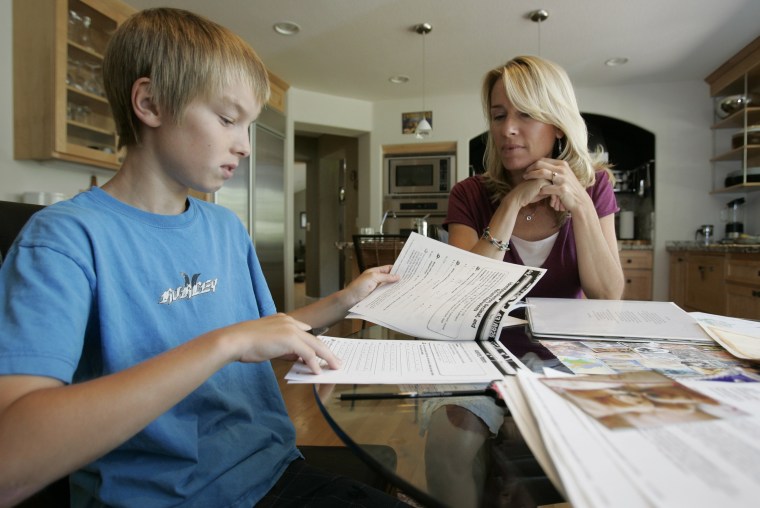
Many kids (and parents) in the U.S. would love to see homework become a relic of the past, much like walking to school in the snow uphill – both ways. While a homework-free society remains a mere dream here, students in France may soon bid adieu to homework if French President, Francois Hollande, has his way.
France 24 reports that while discussing education reforms, Hollande said, “Work should be done at school, rather than at home.” His goal is to help equalize the playing field for students who don’t have family support at home to help with homework.
In order to compensate for the lack of homework, he proposed requiring kids to spend more time at school during the week. While students in France only attend school four days a week, they typically don’t get out of school until 5 or 6 p.m. Hollande’s proposing adding another half-day of school to that schedule.
Although Hollande is looking to level the playing field for kids who don’t have family willing and able to help out with homework, that may not be necessary, as many think the value of homework is over-rated. Over the years, numerous studies have come out, questioning the effectiveness of homework.
In this year’s back-to-school series, TODAY.com looked at several of those studies. One of the more recent ones showed that kids who did more homework actually performed worse on standardized tests. Additionally, Stanford University professor Denise Pope told TODAY.com that high-achieving students with lots of homework could actually suffer mentally and physically as a result. Parents sometimes worry that burdensome homework loads make it harder for kids to participate in extra-curricular activities and after-school jobs, which help them become more well-rounded.
While some schools have scaled back on the amount of homework, most are still regularly passing out assignments, to the dismay of students (and some parents and educators).
Would you support an all-out ban on homework or do you think it’s a valuable tool for kids?
Dana Macario is a Seattle-area mom who would have loved a ban on homework when she was in high school.
More stories from TODAY Moms:
Mother-daughter bonding at concert makes mom a Belieber
Entitlement: The new childhood epidemic
Malia Obama is not going to be on Facebook anytime soon
Login
Register .
|
- ECHR & Institutions
- Other Content
- Our Mission

Ban on home schooling in France: ECLJ alerts UN Rapporteur on Education
Homeschooling Ban: ECLJ alerts the UN
The United Nations Special Rapporteur on the right to education has called on civil society to contribute to the elaboration of her next report on the "advances and challenges of the right to education." The ECLJ has submitted a written contribution to alert her to the major setback to educational freedom in France ( available here in French).
The right of parents to educate their children has been factually abrogated by the law of August 24, 2021 reinforcing the respect of the principles of the Republic. Emmanuel Macron had announced on October 2, 2020 that he wanted to ban home schooling completely. Justifying this restriction by the fight against "Islamist separatism," he had clearly expressed the real purpose of this project: to prevent parents from transmitting a religion to their children. In a very ideological speech, he said that: "The school is the republican melting pot. This is how we protect our children in a complete way with regard to any religious sign, to religion. It is really the heart of the space of secularism, and it is this place where we form consciences so that children become free, rational citizens who can choose their lives." As if religion inherently prevents rationality and freedom.
After 10 months of discussions about the legal, juridical and material difficulties of such an infringement of parents' rights - debates in which the ECLJ took part alongside the families - homeschooling was eventually severely restricted, but not completely banned. The right of parents to educate their children, which was a fundamental principle recognized by the laws of the Republic, has become a derogation. This is a paradigm shift that means the following: the state is in charge of the education of your children and, if you ask, it can exceptionally grant you the right to educate them. The state claims to take the place of parents and decide for them what is in the best interest of their children. This claim was confirmed on December 13, 2022 in three decisions of the Conseil d'Etat [1] .
This policy shift is contrary to common sense and natural law. Parents are primarily responsible for their children and are naturally obliged to take care of them, to raise them and to educate them until they are independent. This new French law is therefore contrary to the Universal Declaration of Human Rights which states in its article 26, paragraph 3 that: "Parents have a prior right to choose the kind of education that shall be given to their children."
In addition to this infringement, it has now been established that the reform was not justified on its merits. To date, the government has not been able to prove that there was a link between home schooling and Islamic radicalization or separatism. The vast majority of parents practicing home schooling do so well, without any Islamic tie. Official government figures show that the State controls' outcome are fine and that "public or private schooling injunctions" are extremely rare, a few dozen per year at the most [2] . Of these few problematic cases, no child has ever been monitored for "radicalization" or "terrorist threat".
Finally, an administrative machinery has been set up against the rights and interests of children and their parents. Discretionary power has been given to the academies which accept or refuse homeschooling requests, often without justification or in an inconsistent manner. Discrimination based on place of residence has emerged. Unpredictability reigns and thousands of families have given up or have been unfairly prevented from educating their children themselves.
Today, the right to education is guaranteed in France, but in an unsatisfactory way. School violence, lowering of standards, lack of teachers, dilapidated schools, outdated or ineffective pedagogies and many other ills: the public school does not respond correctly to many challenges. In the face of this, homeschooling represents an opportunity for parents and society to advance the education of children. Homeschooling is a freedom that works and helps children to succeed. It is not a threat to the state.
This is essentially what we explained to the Special Rapporteur on the right to education in our contribution. The Special Rapporteur is Ms. Farida Shaheed, a Pakistani elected to the position in 2022. Based on the contributions received, the Rapporteur will issue a report to be presented at the June 2023 session of the Human Rights Council. The ECLJ will participate in the debate with her on this issue, so that she can urge the French government to reform its law.
Sign our petition to support our international action for the right of parents to educate their children.
[1] Conseil d’État, 4 e et 1 ère Chambres réunies, N°462274, 13 décembre 2022, § 2.
[2] Collectif « Les enfants d’abord », Les rapports de la DGESCO des années 2019/20 et 2021/22 communiqués , 29 décembre 2022, accessible ici .
Press Release

The ECLJ is Hiring! 3 Positions to be Filled

Pharmacists and Experts Take a Stand Against Euthanasia

Online Violence against Children: The Parliamentary Assembly of the Council of Europe Accuses Pornography

Advocating for the Protection of the Unborn Child: New UPR Submissions

Persecution of Christians: 7 Countries Under the UN’s Eye

Peril on Greek-Orthodox Foundations in Turkey

Neil Datta: Fighting Pro-Lifers to Control the Poor

Protecting Children From Pornography
Connect with Us
The European Centre for Law and Justice is an international, Non-Governmental Organization dedicated to the promotion and protection of human rights in Europe and worldwide. The ECLJ has held special Consultative Status before the United Nations/ECOSOC since 2007.
The ECLJ engages legal, legislative, and cultural issues by implementing an effective strategy of advocacy, education, and litigation. The ECLJ advocates in particular for the protection of religious freedoms and the dignity of the person with the European Court of Human Rights and other mechanisms afforded by the United Nations, the Council of Europe, the European Parliament, the Organization for Security and Cooperation in Europe (OSCE), and others.
The ECLJ bases its action on "the spiritual and moral values which are the common heritage of European peoples and the true source of individual freedom, political liberty and the rule of law, principles which form the basis of all genuine democracy" (Preamble of the Statute of the Council of Europe).
European Centre for Law and Justice | Copyright © 2024 | Privacy & Security Policy
Cookies & Privacy
There is no advertising for any third party on our website. We merely use cookies to improve your navigation experience (technical cookies) and to allow us to analyze the way you consult our websites in order to improve it (analytics cookies). The personal information that may be requested on some pages of our website (subscribing to our Newsletter, signing a petition, making a donation ...) is optional. We do not share any of this information we may collect with third parties. You can check here for our privacy & security policy for more information.
Sign up for Email Updates

The complete guide to the French school system
What is school like in France? It’s a question you might find yourself pondering as you study French and get to know more about French culture.
In some ways, French school is like school in many places in the world, including the US and UK – but there are a number of key differences, including a few that give some interesting insights into French culture as a whole.
Explaining just about any country’s education system is a complex task, since there are so many different aspects to look at. The French education system in particular is known for being complicated when it comes to things like different categories and types of diplomas and tests.
Hopefully, this article will give you a good overview and some important takeaways about school in France and the French school system.
French school vocabulary
Before we start discussing the French education system, there are some words it might be helpful to know – or words you might already be wondering how to say. How to say “school” in French, for example.
When you think about it, there’s a lot of vocabulary related to school, from school supplies, to types of exams, to traditions. But when talking or learning about school in France, here are a few that are especially useful.
Note that you’ll find additional vocabulary, including school grades/levels, diplomas, and more, in the sections of this article that focus on them.
l’école – school. This is a general word for school in French, but as you’ll see in later sections of this article, schools of different levels have different names, just as they do in many other places (nursery school, high school, etc.).
un professeur/une professeur(e) (often shortened to prof )– teacher. This is the general word for “teacher” in French. It used to be exclusively masculine, even if the teacher was a woman. But in recent decades, it’s become accepted to use it with a feminine article when talking about a female teacher. In Canadian French especially, to people may add an “e” to the end when referring to a female teacher, as well: une professeure .
In France, teachers are usually referred to by their first names until collège (middle school/secondary school). Then, they’re referred to as Monsieur or Madame [Last name].
un maître/une ma î tresse – a teacher in preschool/elementary school. Teachers of younger kids are usually referred to this way. Their students usually refer to, or, in preschool/nursery school, call them, by their first name. By elementary school, to be polite, they will usually just call them Maître or Ma î tresse when addressing them directly, but will still use their first name, for instance, to say who their teacher is.
un instituteur/une institutrice – a more formal, less common term for an elementary/primary school teacher.
un directeur/une directrice – the principal/headmaster or headmistress of a school.
la rentr ée – back to school. This can refer to the first day back at school or the general back-to-school period. La rentr ée is also used as a general term for a return to the routine after summer vacation, so you will see it in other contexts, as well.
la cantine – the cafeteria or canteen/dining hall.
les devoirs – homework. If you’re in French class, you probably already know this word quite well!
la r é cr é ation/la r é cr é – recess.
l’étude – study hall.
les notes – grades or marks.
la classe – class/classroom.
un cours – a class (for middle and high school/secondary school).
un examen – a test.
une interrogation (often called une interro ) – a quiz.
faire l’école buissonnière – to skip school.
sécher un cours – to skip a class.
le centre de loisirs –after school program/vacation program. This usually includes activities as well as free playtime, and sometimes a study hall option or sports options. During school vacations, the centre de loisirs is a sort of (optional) day camp for preschool and elementary school kids.
We’ll cover many other French school vocabulary words throughout this article. You can also find more school-related French words here .
Basic facts about the French school system

Public (state) education in France is compulsory for children aged 3-16.
Until recently, it was 6-16, but that changed in 2019. So, if you’re reading an older source on French education, keep that in mind.
Another big change is that, as of the 2020-2021 school year, people aged 16-18 who have stopped their studies are required to be employed or involved in an internship or volunteer work .
Public (state) and university education in France are free or extremely affordable.
All state-run primary and secondary education in France is free. This includes la maternelle (preschool/nursery school). People from countries where preschools/nursery schools are private and expensive will probably be impressed by this (I know I was, not to mention grateful).
In fact, one of the principles of education in France seems to be affordability. Even universities, which do charge tuition, only charge a few hundred to a few thousand euros per year. There are some universities that cost more, but these tend to be private ones that, interestingly enough, aren’t usually considered as prestigious.
There aren’t really “good” and “bad” public (state) schools in France.
Some French high/secondary schools are known for their high level of academic achievement and for carefully selecting students (this is similar to the high school system in New York City, for those familiar with it). Or there might be schools where outside problems like crime rate or poverty contribute to the general environment.
But generally speaking, because of the strict way school is viewed, the rigorously upheld national curriculum, and the fact that in the early years of their careers, teachers are usually required to teach in other French regions besides their native ones, French schools are fairly uniform when it comes to their quality. Again, there can be some exceptions, but the actual level of education in public schools tends to be perceived as the same, at least in my experience.
A major principle of French public (state) schools is la laïcité (separation of church and state).
Students aren’t allowed to wear religious symbols (although a very subtle one, like a small necklace pendant, may be tolerated) or clothing, and no religious holidays are celebrated or even particularly discussed at school.
In some cases, there may be a school celebration or play around Christmastime, but even this tends to be referred to as an “end-of-year” celebration. That said, in this predominately Christian country, some schools may put up a small Christmas tree, and classes and after school activities may involve Christmas-themed coloring pages or crafts, but it’s never particularly overt and these decorations never feature religious symbols like angels, a manger/creche, etc.
Although education is compulsory until age 16 in France, an estimated 64% of students stay in school until age 18.
A little over 50% of them will continue to university or an apprenticeship.
More than 80% of schools in France are publics (public schools (US)/state schools (UK)).
Most of the remaining 20% of schools in France are private schools (public schools for our UK readers). A majority of them are run by the Catholic church, but they tend not to be intensely religious. One of the reasons for this is that French private schools can be sous contrat – that is, affiliated with the state, including for the payment of their teachers’ salaries, if they follow certain rules, like adhering to the national curriculum.
Homeschooling (usually called le homeschooling ) is legal in France, but very rare.
Only about 0.3% of school-aged kids are homeschooled here.
There is a standard national curriculum for every grade/level.
Grades/notes in french public school are based on a maximum of 20 points ..
So if a student gets a 20 on a test or assignment, they got a perfect score. 10/20 is usually considered at least a passing grade.
Starting as early as CP (1 st grade/1 st year), it’s common for French students to have to memorize poems and recite them in front of the class.
Each student may have to recite a poem, or a student might be randomly called upon to do it. It’s kind of terrifying, but it also leads to many French people knowing at least a few lines of famous poems by heart.
School supplies are very standardized and important.
One of the strangest things for me when I started teaching in French elementary schools is how each child has the same kind of supplies (even though some of these, like backpacks and folders, can be personalized), and how they use them in the same way.
For instance, if you ask an elementary school child to write something down, they’ll often take out an ink pen and make a neat line with a ruler to head their paper. Students have many different kinds of notebooks (a school planner, a notebook of poems and texts to memorize, etc.) and folders, and overall are encouraged to be very organized and precise.
French students still learn cursive.
In certain places, like the US, many schools have stopped teaching cursive, but in French, it’s still taught – even from kindergarten/year 1 ( grande section ). In fact, handwriting is a big part of French learning.
The types of French schools
There are five types of French schools, although some may be combined, especially in areas with a small population.
Note that kindergarten/year 1 is grouped with preschool/nursery school, and not elementary school, like it usually is in the US.
The five types of French schools are:
- la maternelle (preschool and kindergarten/nursery school and year 1) for students age 3-6
- l’école élémentaire (elementary school/primary school) for students age 6-11
- le collège (middle school (including ninth grade)/secondary school) for students age 11-16
- le lycée (high school/secondary school) for students age 16-18
- l’université , often called la fac (short for la faculté ) (university/college) for students 18 and up
These schools cover three main categories of education:
- l’école primaire (primary school). This includes la maternelle and l’école élémentaire .
- l’école secondaire (secondary school). This includes le collège and le lycée .
- l’enseignement supérieur (higher education) – l’université .
We’ll look at the equivalents of each grade/level a little further on.
The French school year, week, and day

The French school year starts in early September and usually finishes around the first week of July.
Up to university level, students have a two-week break every six weeks or so.
There’s one in mid-October to early November ( les vacances de la Toussaint ), one in mid-December to early January ( les vacances de fin d’année ), one in February ( les vacances de février ), and one in March or April ( les vacances de printemps ). Additionally, there is a two-month summer break ( les vacances d’été / les grandes vacances ).
There are also a lot of holidays on the French calendar, including three in the month of May alone. Add to this the very likely possibility that there could be a teacher strike or a strike that affects teachers’ ability to come to the school (like a transportation strike, for instance), a teacher being sick and the school not being able to find a substitute, teacher workdays, and so on, and you will discover that while kids in French schools work hard, they do, luckily, get a pretty decent amount of time off.
French students from maternelle through lycée go to school five days a week (Monday-Friday).
School times and schedules can vary a bit, especially as kids get older, but generally speaking, school starts between 8 and 9am and ends anywhere from 3-4:30pm. Kids might stay at an after-school program until as late as 6:30pm.
If you’re reading or watching something that dates to pre-2008, you may notice that the school schedule was a bit different. Before that time , schools were open on Wednesday mornings, and then also also on Saturday mornings.
The idea was to give kids a bit of a mid-week break, as well as time to pursue extracurricular activities (more on that in a bit). But as a working parent, I cannot imagine how complicated it must have been…or how annoying to have to wake up early on a Saturday to get your kid to school for a few hours…not to mention to have to have part of your Saturday blocked. Fortunately, that’s no longer the case today.
There are no longer classes on Saturday mornings, but typically, maternelles and écoles élémentaires still only offer classes on Wednesday mornings until lunchtime. Parents can sign students up for after school programs and activities that allow them to stay at the school for the typical amount of time if they prefer, or if they need to due to work.
French school life
Here are some important things to know about school life in France:
French students in public (state) schools don’t wear uniforms.
French students in public (state) schools don’t have an equivalent of something like the pledge of allegiance, morning prayer, etc., most french public (state) schools don’t allow students to bring their lunch from home..
Students either eat at the la cantine (cafeteria/canteen) or go home for the allotted lunchtime (usually an hour or two).
Meals served in French schools are usually considered decent to good quality.
I’ve heard that in a way, meals served in French schoools are a form of education, exposing students to many traditional French dishes. As early as la maternelle , children eating in the school cafeteria also start learning things like how to cut their meat, how to drink from a real glass (as opposed to a plastic one), etc. These are some of the reasons why my son eats at the school cantine – he gets to try traditional French meals it may not occur to me to make at home, and he reviews and brushes up on his table manners .
French schools aren’t closely tied with extracurricular activities or dances.
In places like the US, school is a huge part of students’ lives, especially as they get older. Many activities, including music, sports, debate club, the school newspaper, yearbook, and so on, are organized through the school and take place on the school grounds. But this isn’t the case in France.
For the most part, in France, school is school. You will have physical education or art or music classes during the day, but if you want to do more than that, you’ll have to sign up with an outside after-school program.
This also means there isn’t a sense of “school spirit” or “the big game” that you see in a lot of American TV shows (and experience in real life if you go to an American school). French schools also don’t organize school dances or have yearbooks, or even graduation ceremonies in most cases. The idea behind this, I think, is that school is about academics: the French are very serious about students being there to learn and do their work.
French education and activities are as affordable as possible.
Each year, based on their income tax, families are given a tarif familial . This determines how much they’re charged for things like school lunches, field trips (although some of these are free) and other activities, supplies, etc.
Is bullying an issue in French schools?

Bullying exists in French schools but, in a way, on a lesser scale than in some other places.
Bullying ( le harcèlement ) does, unfortunately, happen in French schools. But it’s not the sort of systematic thing it is in the US, where the bully is a stock character in every high school-set TV show, and the results of real-life bullying often make news headlines.
This said, there have been bullying-related suicides in France, and there are anti-bullying campaigns and helplines. The issue is addressed by school administration. But most French people I know don’t seem to have had problems with bullying (or to have been bullies) when they were in school, and it doesn’t seem like the sort of shared, expected experience that it does in countries like the US.
It’s fascinating to me that there is no exact French word or phrase for “school bully”. I think that this shows two important things about French culture:
1. It’s a bit tougher, maybe some would say more “tough love”, than the culture in places like America. For instance, while a bully would be the only one to make fun of you for not getting a good grade, or generally being “stupid”, many French teachers will point out a student’s inadequacies (at least academically), and friends and acquaintances will liberally correct each other. When I taught in French elementary schools, this was pretty shocking to me.
2. A more old-school “stiff upper lip” mentality still predominates. This is changing, as people become more aware of the effects of bullying and as victims speak out and express themselves on social media and elsewhere. But as with many problems that cause strong emotions or difficult, complex feelings, the idea in French culture is to try to accept it and certainly not to air it out in public.
This said, these are general observations, at a large-scale level. Many parents of kids who are being bullied will take action of some kind, whether that’s confronting the kid or their parents themselves (although schools discourage this), talking to school administrators, or at least considering getting their child psychological help if it’s needed (though therapy is fairly rare and often thought of as strange or unnecessary in mainstream French culture).
What is each year (level) of school called in French?
Most French students are in school for fifteen years (not counting university) – from petite section at age 3, to terminale at age 18.
Here are the French school grades/levels and their equivalents in the US and UK. For anyone unfamiliar with these school systems, I’ve also included the age a typical student would be in each grade/level.
Note that there are three types of French lyc ée (high school/secondary school). These are:
le lyc ée g én éral – the typical high school you might be thinking of, where students take academic classes in many different subjects.
This said, students in these schools choose a path of study based on their major areas of interest/what they want to major in in university. So some will have more emphasis on math courses, while for others it will be foreign languages or literature, etc. The system is a bit complicated to us outsiders, especially since there are subdivisions. This Frenchman’s account of being a student at a typical French lycée gives some interesting insights. And as he advises, the Wikipedia entry on the baccalauréat exam also provides some helpful information. The French entry goes into even further detail.
le lyc ée technique/lyc ée technologique – This high school (or sometimes just a high school curriculum) focuses on applied technical or technological studies alongside academic ones. Areas of study include laboratory sciences, applied arts, management, and hospitality industry studies.
le lyc é e professionnel – vocational school. That is, a school that mainly focuses on preparing and teaching students who plan to go to work directly and don’t need or want to pursue their studies into university. Subjects include construction-related work, agriculture, and clerical positions.
Students at all three types of lyc ée will have to take some kind of exit exam , usually a variant of le baccalaur éat . This will determine if they can go to university (and which university will accept them), or, in the case of some lyc ée professionnel exit exams, like the CAP ( certificat d’aptitude professionnelle ), if they’re qualified to do a particular job or set of jobs.
What to know about French universities

French universities are always called “ université ”, not college .
But you may see this word associated with older forms of higher education in France in the Middle Ages, Renaissance, and even around Revolutionary times.
Usually, though, coll è ge means “middle school” in contemporary French.
A university is usually referred to in everyday language as la fac .
This is short for la faculté (school division of a university). The pronunciation of this word may sound a bit obscene to the unprepared Anglophone ear, as this funny, iconic, and NSFW scene from the hit French movie L’Auberge espagnole delightfully illustrates , but when you listen to it more carefully (as you should when the French-speaking character pronounces it), you’ll realize that it really does have a short “a” sound.
Not all French universities are considered equal.
This doesn’t necessarily mean in terms of the excellence of their faculty, but in terms of their funding and prestige.
Any French university will have a certain standard of academics that’s perfectly respectable. But French universities are often no-frills affairs when it comes to funding. There are also no special events like graduation ceremonies and such, and there aren’t donors who regularly gift the school with new wings and materials.
On the other hand, the Grandes Écoles are exclusive, extremely prestigious French universities that students full of academic, career, or political ambition strive to get into. They’re the rough equivalent of Ivy League schools in the US, but unlike an Ivy League school, a Grande École will only have about 200-300 graduates per year.
Unlike countries where your diploma will only take you so far, it’s been observed that every French president has always graduated from a Grande École, not some regular university.
As this article points out, the French university system can be seen as elitist . But at least even the Grandes Écoles only charge a few thousand euros for tuition, which allows them to be accessible based on academic merit, rather than economic earnings (and keeps students debt-free).
So, there are good and bad sides to the system.
After graduating from lycée , most students who want to enter a Grande École will take one to two years of classes préparatoires first.
Affiliated with a lycée and usually called by a singular, shortened name, prépa , this is an incredibly intense year or two of studies, with at least 30 hours a week of work, plus oral exams.
Prépas are organized into different areas of studies , but all of them are intense and challenging. I know someone who took a year of prépa before going to a prestigious engineering school. He says it was the hardest year of his life, even harder than taking classes at the Grande École he then got into. He just worked and slept.
The reward for this work is getting into a good school and then, hopefully, getting a good job that lets you earn a good living or even fulfill your most ambitious desires, like becoming head of state.
That said, as with any prestigious school, a diploma is a diploma; it depends on what you choose to pursue afterwards. My friend, for instance, went to a Grande École and currently has a well-paid IT job. He’s very happy, but it’s not like his academic career automatically made him the French president or one of the richest people in the country.
La Sorbonne is not considered the best school in France.
Internationally, the best-known French university is probably La Sorbonne, officially known as l’Université de Paris today. Established in the Middle Ages, it was the first university in Europe, and is one of the oldest in the world. Still, while you can get a quality education at La Sorbonne, it is not a Grande École.
When it comes to universities in France, cost does not equal quality.
There are many private French higher education organizations that (like many of their counterparts in the US) are more focused on making money than on education.
These schools are usually very pricey, but have no prestige among the French. As a general rule, the higher the cost of a university/higher education institution in France, the less its diplomas are actually “worth”, although there are a few exceptions. If you’re thinking about studying in France, be sure to research any private institutions you’re considering.
French diploma equivalencies
Most French universities offer a three-year program to get the equivalent of an undergraduate degree in the US or UK.
But there are a lot more French diplomas than that, and sometimes it can be confusing to find their equivalents in another country’s education system.
Let’s look at the most common French diplomas you’ll come across, and their equivalents in the US and UK.
• un DEUG (two-year university diploma) – Associate’s degree (US)/Diploma of Higher Education (UK)
• une licence – (a three-year undergraduate degree) – Bachelor’s degree
Licence dans un domaine littéraire : BA/Bachelor of Arts
Licence dans un domaine scientifique : BSC/Bachelor of Science/B.S. degree
• Master 1/ Maîtrise – Master’s Degree
• Master 2/ DEA : A degree given one year before postgraduate studies. There is no precise equivalent for this in the US or UK, as far as I can find, so it still generally corresponds to a Master’s Degree.
Master dans un domaine littéraire : MA (Master of Arts)
Master dans un domaine scientifique : MSC/MS (Master of Science)
Master dans les affaires : MBA (Master of Business Administration)
• Doctorat : Phd/doctorate
This helpful webpage lists a few more specific French diplomas , as well as certain documents and certifications, along with their UK and US equivalents (when applicable).
French school milestones

You may live in a country where school is full of major events. I know that’s certainly the case in the US, where I grew up. Finishing each kind of school can, in some places, be the reason for a celebration or even a ceremony at the school itself. There are school dances, competitions, sports, and more, and of course, when you graduate from high school, there’s the iconic cap and gown ceremony where you receive your diploma.
But that’s not really the case in France. As I’ve mentioned before, the French are very serious about education. Kids may have fun at school, but there isn’t a really fun or “big deal”/ “good job” spin on things. Add to that the fact that most activities like extracurricular sports, clubs, and so on, aren’t associated with schools directly, there are no dances, and there aren’t many big school events.
This said, it may depend on the school, and of course, there can be exceptions. French preschools and elementary schools often host end-of-year carnival-style parties, for instance, and some put on concerts or plays as well.
One thing that does shape the school experience for French students are two important exams.
The first is le brevet des coll èg es , a major test taken at the end of collège (middle school) and the rough equivalent to the GCSE’S under C Grade or GNVQ Intermediate in the UK. There is no US equivalent.
The biggest French school milestone is taking le baccalaur éat , usually called le bac . This exam covers multiple subjects and includes written and oral sections, as well as some parts that may require demonstrating skills (in sports, for example). A student’s overall score and some of the minor subjects covered will differ depending on their area of study.
Le bac is the rough equivalent of A levels in the UK. As for the US, many sources say le bac is similar to AP exams, but personally, since all French high school students have to take it and it influences college admissions, I consider it similar to the SAT’s. The SAT’s are a standardized test covering a limited range of subjects, but when it comes to cultural impact and pre-test jitters, that’s the best match for le bac .
Le bac has many variants and a complex scoring system that I won’t go into in this brief overview of the French education system, but if you’d like to learn more about le bac , I’d recommend this detailed resource.
The biggest difference between le bac and AP or SAT exams, though, is that le bac also determines whether or not you can graduate lyc ée. In that sense, you can think of it as your high school diploma or a certificate of completion.
The results of the bac are posted on lists in front of the school. French students go to find their scores, then, hopefully have reason to celebrate, and that’s it – lycée is finished. There is no graduation ceremony.
University in France does seem to be a similar experience to US and UK schools, in that students still find ways to have fun, and things are a little more open in terms of scheduling – even though there’s still a lot of hard work.
At the end of post-graduate studies, students write and defend (present) un m émoir (thesis/memoir/ dissertation). If the jury of academics approve, they and the family members and friends that the student has invited will often finish the presentation with a small celebratory ap éro (snacks and drinks).
At the end of some university cycles, there may be une remise de diplômes (graduation ceremony). Students would typically wear business or formal attire, rather than a cap and gown or other traditional clothing. But graduation ceremonies aren’t especially common.
Overall, you could say that the motto for school in France is “it’s not personal, it’s business.” Whether they’re 3 or 23, French students’ priority is to learn. Fun is something that may happen but it’s not considered an intrinsic part of the educational experience, nor are emotional events like marking milestones.
This doesn’t mean that school in France is a totally joyless affair. You only have to look at comedies old and new that are inspired by the French school experience, including the iconic Le Petit Nicolas and the relatively recent movie Les beaux gosses (sort of like a French Superbad ) to see that there are plenty of laughs, good memories, and nostalgia tied to French academic life.
What is school like where you live? What do you like and dislike about the French education system?
- What are the best French learning apps in 2024?
- The 16 best websites and apps for French conversation practice
- Duolingo French review: The good, the bad and the ugly
Alysa Salzberg
Alysa Salzberg is an American writer, worrier, teacher, and cookie enthusiast who has lived in Paris, France, for more than a decade. She has taught English and French for more than ten years, most notably as an assistante de langue vivante for L'Education Nationale. She recently published her first novel, Hearts at Dawn , a "Beauty and the Beast" retelling that takes place during the 1870 Siege of Paris. You can read about her adventures here , or feel free to stop by her website .
You are using an outdated browser. Please upgrade your browser or activate Google Chrome Frame to improve your experience.
French Homework Help: 10 Essential Resources
Au secours! (Help!)
Do you ever find yourself mentally screaming this while struggling to complete your French homework?
Ever get overwhelmed with your assignments and wish that someone—anyone!—would just step in and make the French murkiness a little clearer?
To help you out with this, we’ve compiled the 10 best online resources to get French homework help quickly. So read on, and then try out a couple next time you’re confused or stuck.
1. Bescherelle
2. larousse, 3. bonpatron, 4. alloprof, 5. verbling, 6. 24houranswers, 7. wordreference, 8. french language stack exchange, 9. tex’s french grammar, 10. le conjugueur, and one more thing....
Download: This blog post is available as a convenient and portable PDF that you can take anywhere. Click here to get a copy. (Download)
Summary: Well known grammar and conjugation help source

If you’ve ever attended an in-person French class, there’s a good chance you’ve already seen or heard of this first resource. Bescherelle is better known for its written counterpart, a guide to hundreds of verbs in the French language, but you don’t have to run to the bookstore just yet. Bescherelle is also available online!
Bescherelle conjugates almost every verb imaginable into any tense imaginable. That means that you can look up any verb and find it in all verb tenses and participles . Additionally, you can get the verb conjugations in both the active and passive voice: an excellent resource for when you’re completing upper-level French papers that require you to write impersonally.
Further, when you search for a verb, you can find out whether it’s regular or irregular and you’ll even see other verbs that are conjugated with the same verb ending pattern.
In addition to the conjugator, the Bescherelle website includes dictées (dictations) for you to practice your listening and writing skills, quizzes about verbs and their tenses as well as other grammar points such as nouns and adjectives. If you’re feeling energized, Bescherelle also has a selection of French-learning games .
Summary: Accurate and nuanced word definitions

Larousse is a famous French dictionary that’s also available online. That means you can search any French word you’d like and get an in-depth look at its meaning, not just a one-word translation that may miss the meaning entirely (I’m looking at you, Google Translate!).
The dictionary itself offers many resources for French learners and for French homework help. First, Larousse has a monolingual French edition so you can look up words and see their definitions in French. Larousse also has bilingual editions for many other languages. Larousse can translate words into English, Spanish, German, Italian, Chinese and Arabic from French and vice versa.
In addition to its dictionaries, Larousse offers a verb conjugator similar to that of Bescherelle. While it’s not as in-depth as Bescherelle’s, it gets the job done for quick searches of common conjugations. Further, Larousse has an awesome encyclopedia to be used for French essays or other projects .
Finally, Larousse offers forums for people to post questions, which can be helpful if you’ve got a specific question about your French homework (more on getting those answered below).
Summary: Accurate online grammar and spell checker

For those who need a complete revision of French written compositions and not just simple word look-ups and verb conjugations, BonPatron is the holy grail! BonPatron is an online French grammar and spell checker extraordinaire!
Let’s say you’ve been tasked with writing a paragraph or essay for your French course. You’ve looked up all the words you didn’t know and verified all the conjugations, and to be honest, you’re feeling pretty good about it.
But wait! Before you hand your work in, you should make sure everything is correct. Simply paste your French written work into the BonPatron checker, and the service will find all your spelling and grammar errors for free. It’ll even give you necessary corrections as well as a small explanation for any mistakes you’ve made.
But it gets better: if the grammatical explanations don’t clarify the error for you, BonPatron also offers short tutorials on different aspects of French grammar.
Summary: Text and telephone connection to French Canadian speakers
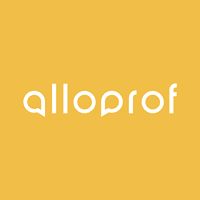
Our first resource for personalized homework help is called Alloprof, a website from Québec that offers students a wealth of resources.
On Alloprof , there are two services where students can connect directly with French educators to get answers to their questions or access personalized French homework help.
The first is called t exto (text message) , a service where students can text their questions and receive text message answers. The second service is called téléphonique (by telephone) , where students can call in their questions and receive one-on-one, over-the-phone support.
Both services are available Monday through Thursday, 5 p.m. to 8 p.m. That’s great because those are prime homework hours, but it can also force you to plan ahead (no last-minute homework help right before your morning class!).
Alloprof has a handful of other fun, independent practice tools , too.
You can access interactive exercises to help you review and practice grammar and vocabulary skills. Topics range from French grammatical explanations to history, science and mathematics. Alloprof also has a virtual library where students can access texts as well as a forum for students to communicate with other French learners.
This is perfect for asking informal French questions and getting answers from peers who may be studying the same material.
Summary: Excellent place to find good tutors and teachers

Verbling is a service that connects French learners to French teachers and tutors all around the world . If you’re stumped on your homework and need an expert to identify the learning block, Verbling is a super handy resource. Simply log on and pick a tutor that you like best.
All the language teachers are native speakers. You’ll find a short summary of the tutor’s specialities and get a feel for who they are personally. You can also access ratings from previous students so you can find the best educator to meet your needs. Verbling displays tutors’ rates right upfront so you know how much you’d be paying.
Verbling even uses its own virtual “classroom” set-up , where you can upload files and notes alongside a video chat. That’s perfect for quickly showing your tutor the class materials you’re having trouble with, or sharing your work so they can give you feedback.
Summary: Emergency help any time of the day or night
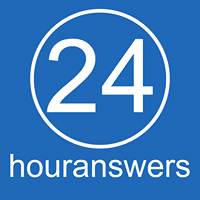
Like Verbling, 24houranswers connects French learners with tutors and teachers all around the world. 24houranswers has homework help for many subjects, but for French homework help, it focuses on the language at the college level , and as their name suggests, they’re available 24 hours a day .
Many of the tutors and teachers from 24houranswers are actual college professors or other education professionals . Their services include online face-to-face tutoring as well as written solutions. For example, you can submit a written assignment and receive feedback on the assignment—just be careful to leave enough turnaround time for your tutor, so you don’t hand in an assignment late.
In addition to their in-person support, you can browse their online library of previously solved French homework questions to see if your question has already been asked and answered.
Summary: Excellent dictionary and active online forums

WordReference is like your friendly online language buddy that’s perfect for French homework help.
It’s not just your regular dictionary–it’s like a language wizard that gives you not only translations but also cool explanations , real-life examples and even a forum where you can chat with others about tricky words.
So, when you’re scratching your head over that French assignment, WordReference and the many who are active on its message boards could provide the help you need.
Summary: Online forum where you can ask other learners questions

French Language Stack Exchange is like a cozy virtual cafe where French enthusiasts gather.
Imagine you’re stuck on a tricky French homework question—instead of feeling lost, you can pop into this online spot and ask for help. It’s not just a Q&A— it’s like having a group of friends who love French as much as you do.
They share tips, tricks and their own experiences, making those confusing parts of French class feel way less daunting. So, next time you’re puzzled, French Language Stack Exchange is the friendly table where answers and insights flow like great conversation.
Summary: Easy to understand grammar lessons

Tex’s French Grammar is your friendly language mentor, ready to unravel the mysteries of French homework. Think of it as having a patient teacher who breaks down grammar rules into bite-sized pieces that make sense.
It’s not about dry lessons—it’s like having a conversation with someone who gets you. Tex’s Grammar doesn’t just throw rules at you—it explains why they matter and gives you examples that light up the “aha” moments. So, when French assignments seem like a puzzle, Tex’s French Grammar steps in to help you put the pieces together and ace that homework.
Summary: Excellent and reliable verb conjugation charts

This site by popular French language newspaper Le Figaro is a great online resource for French students who are looking for help with verb conjugations.
It’s a super accurate conjugation tool that allows you to conjugate verbs in various tenses, moods and persons. It’s particularly useful for students who are working on grammar exercises or assignments that involve verb conjugations. You can enter a verb and see its conjugation presented in a clear and organized format.
FluentU takes authentic videos—like music videos, movie trailers, news and inspiring talks—and turns them into personalized language learning lessons.
You can try FluentU for free for 2 weeks. Check out the website or download the iOS app or Android app.
P.S. Click here to take advantage of our current sale! (Expires at the end of this month.)

Try FluentU for FREE!
Your call for help has been answered! Go forth and finish that French homework (with help, of course)!
FluentU has a wide variety of great content, like interviews, documentary excerpts and web series, as you can see here:

FluentU brings native French videos with reach. With interactive captions, you can tap on any word to see an image, definition and useful examples.

For example, if you tap on the word "crois," you'll see this:

Practice and reinforce all the vocabulary you've learned in a given video with learn mode. Swipe left or right to see more examples for the word you’re learning, and play the mini-games found in our dynamic flashcards, like "fill in the blank."

All throughout, FluentU tracks the vocabulary that you’re learning and uses this information to give you a totally personalized experience. It gives you extra practice with difficult words—and reminds you when it’s time to review what you’ve learned.
Start using the FluentU website on your computer or tablet or, better yet, download the FluentU app from the iTunes or Google Play store. Click here to take advantage of our current sale! (Expires at the end of this month.)
Enter your e-mail address to get your free PDF!
We hate SPAM and promise to keep your email address safe

clock This article was published more than 11 years ago
French president pushing homework ban as part of ed reforms

How do you think this would go over in the United States? French President François Hollande has said he will end homework as part of a series of reforms to overhaul the country’s education system.
And the reason he wants to ban homework?
He doesn’t think it is fair that some kids get help from their parents at home while children who come from disadvantaged families don’t. It’s an issue that goes well beyond France, and has been part of the reason that some Americans oppose homework too.
Hollande’s reform plans include increasing the number of teachers, moving the school week from four days to 4 1/2 days, overhauling the curriculum and taking steps to cut down on absenteeism.
“Education is priority,” Hollande was quoted as saying by France24.com at Paris’s Sorbonne University last week. “An education program is, by definition, a societal program. Work should be done at school, rather than at home,” as a way to ensure that students who have no help at home are not disadvantaged.
Despite the four-day school week, elementary school children in France spend more hours a year in school than many other developed countries because students are there all day, starting at 8:30 a.m. and ending at 4:30 p.m., with some kids staying even later.
It’s not clear where the money to hire thousands more teachers will come from, but, the Associated Press reported , Education Minister Vincent Peillon will have to figure out how to implement the reforms. One option is to shorten summer vacation, though, such a move isn’t likely to be popular because it is practically sacrosanct in France.
Whether Hollande really gets all of this done is open to question. But his homework position is not original; some school districts in the United States did the same thing going back more than a century. Early in the 1900s, the influential Ladies’ Home Journal magazine called homework “barbarous,” and school districts such as Los Angeles abolished it in kindergarten through eighth grade. In fact, some educators said it caused tuberculosis, nervous conditions and heart disease in the young and that children were better off playing outside. The American Child Health Association in the 1930s labeled homework and child labor as leading killers of children who contracted tuberculosis and heart disease.
Today people who oppose homework have different objections, among them, the research that suggests it doesn’t really help young children learn.

Schools in France: A Guide to the French Education System
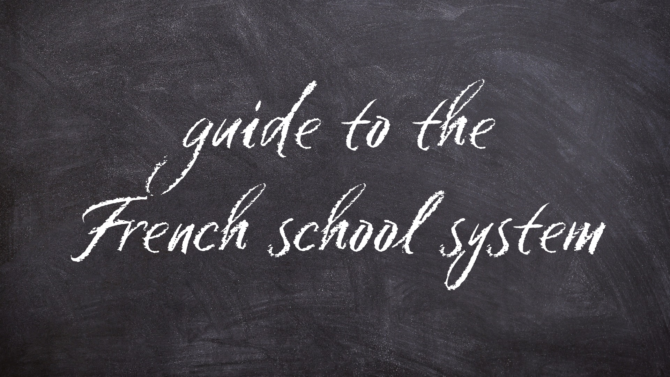
The French school system can seem confusing for expat families but Catharine Higginson’s indispensable guide will help take you through the different stages of your child’s education, from ‘maternelle’ to ‘lycée’, and the exams they will sit in France
Every educational system has its advantages and disadvantages and like any other, the French system is not without its detractors. Equally, it is greatly revered for its overall high standards, 99% literacy rate and lengthy higher education . Education in France is obligatory between the ages of three and 16 and the state is heavily involved in both financing and organising the education system.
The system’s main principles were established in 1958 and provide for free, secular instruction for all. Pre-primary education starts at the age of three, at an école maternelle and some establishments will take children from the age of two and a half. Children are expected to be toilet-trained (although no one will bat an eyelid at the occasional accident) and will generally spend the entire day at school, eating at the canteen, having a nap in the afternoon and working on basic numeracy and motor skills.
This class is known as petite section and from here the children progress through moyenne section and then onto grande section. And yes, it is a ‘proud parent’ moment when your child ‘passes’ from one section to the next at the end of the academic year!
All primary schools offer a before and after school club type service – la garderie – which usually runs from 7am until the start of school and from the end of the school day until around 6-6.30pm in the evening. This may seem like a long day for small children but it is a boon for working parents. Fees are means-tested and incredibly reasonable. The garderie staff will administer after school snacks – le goûter –and supervise homework.
Are there school busses in France?
In smaller communes there may be a ‘ regroupement scolaire ’ in place. This means that children from the different local communes will be bussed into one primary school, or possibly even two different schools so that class sizes are larger. In my case three communes were involved. All three operated a morning garderie and then the bus would collect children from the two communes which were now minus a working school, and take them to the village with one.
In the evening the process would be reversed, but all the children attending the garderie were taken to the former primary school in the larger of the two villages and parents collected them directly from there. Again, it may seem strange expecting even quite small children to take the bus but the system is well organised and in France children do this from a very early age. Most regions provide free or heavily subsidised transport and you can find out where and how to apply for a bus card – titre de bus – through the mairie or online via the commune’s website.
Primary school in France
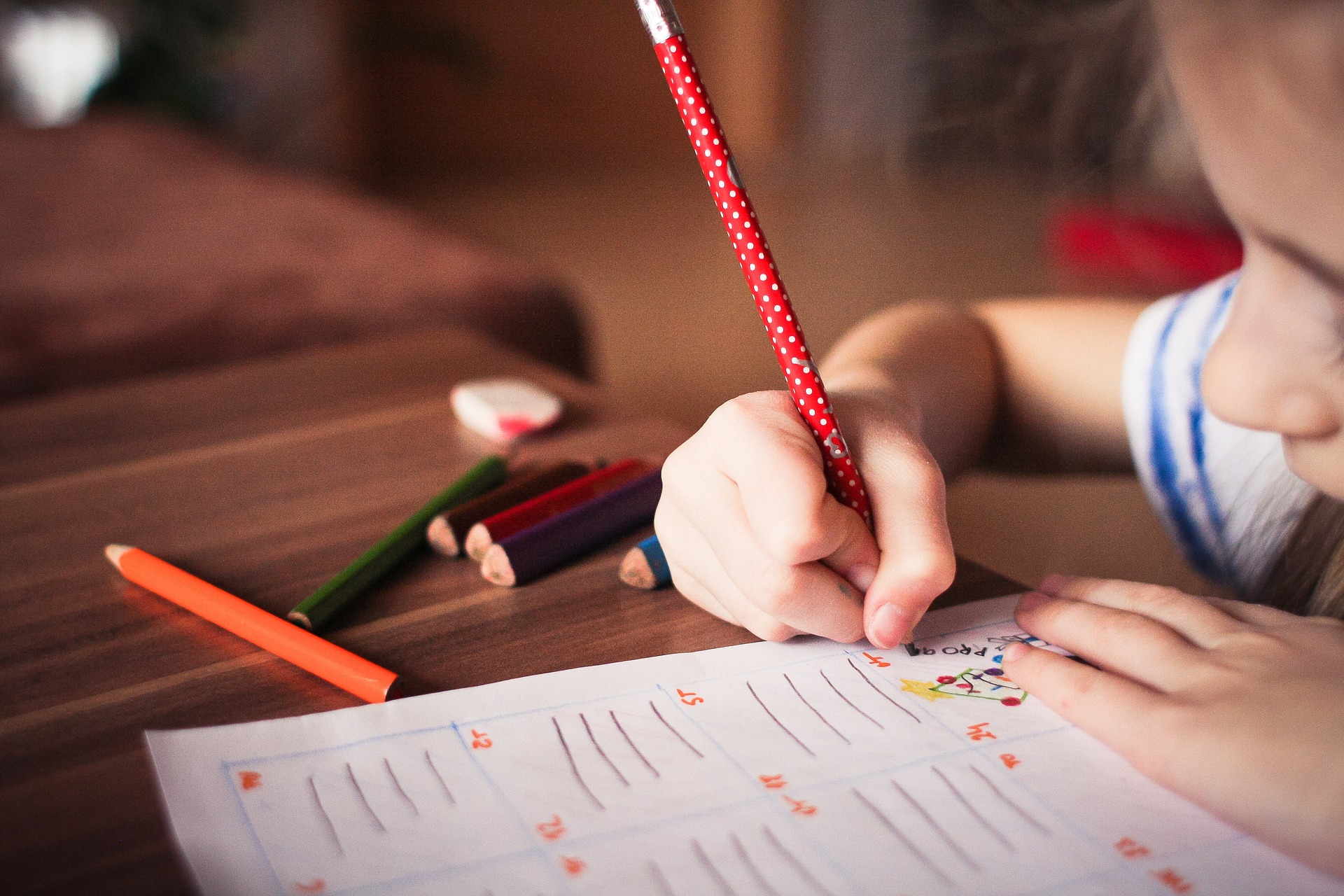
In France ‘primary’ education includes both the école maternelle (from petite to grande section) and the école élémentaire classes which start with CP and end with CM2. CP or cours préparatoire is the first part of the second cycle of primary education (maternelle being the first) and is where more formal education begins; this class is when children are expected to learn to read.
CP is followed by CE1 and CE2 – cours élémentaire première année (CE1) and cours élémentaire deuxième année (CE2) – where the emphasis is on basic literacy and numeracy skills. Pupils finish their primary school with the classes known as CM1 and CM2 ( cours moyen 1 and 2); these years are part of the third cycle which is a period of consolidation of everything the children have worked on to date and which ends during the first year of secondary school or collège .

Secondary school in France
The first class in collège is known as 6ème (the sixth year of education) and children spend four years in collège until they reach 3ème. In their first year, pupils have 26 hours of obligatory classes in French, maths, a foreign language, history and geography, art, music, PE, science and technology and civic education. There will be another three hours of optional subjects to be added to the timetable too and in the fourth and fifth years Latin, German, Spanish or another regional (French) language may be added.
Pupils sit the exam known as le brevet in 3ème and while they do not need to pass this to be accepted into a lycée (high school), or continue with further education, success is considered fairly essential. The exam is seen as both a right of passage and an evaluation of the skills and knowledge acquired in secondary school, and is thus generally considered to be important.
The brevet results are based equally on continuous assessment ( contrôle continu ) and the exams ( les épreuves ). These take place over two days and include a three-hour French exam, two hours of maths, a two-hour history, geography and EMC ( enseignement moral et civique ) paper and an hour-long physics/chemistry/science and/or technology evaluation.

High school in France
After secondary school and assuming that the conseil de classe was favourable (in other words, that the subject teachers were in agreement) children move onto lycée or high school. They might go to a general and technical or professional ( lycée d’enseignement général et technologique/un lycée professionnel ) establishment depending on their capabilities and planned future direction. They will then enter the ‘first’ class (which is confusingly known as seconde) and opt to study for either a seconde générale et technologique , seconde professionnelle or a certificat d’aptitude professionnel (CAP) – 1re année . In the case of a seconde générale pupils can add various options to the core subjects and choose which ‘bac’ subjects they will study for the baccalaureat exam taken at the end of the three year period.
Some technical diplomas (such as catering, graphic design and dance for instance) begin in the first year, i.e. seconde , so it is essential to factor this in when choosing a lycée . Technical lycées offer the bac pro . This offers three years of further education, practical training, hands-on experience in a professional environment, covers 75 specialist professions and results in a qualification.
In some cases, students go onto further studies after their diplomas. The CAP is another more practical qualification covering around 200 specific careers mainly within the industrial, commercial and service sectors.
Shopping for school supplies in France
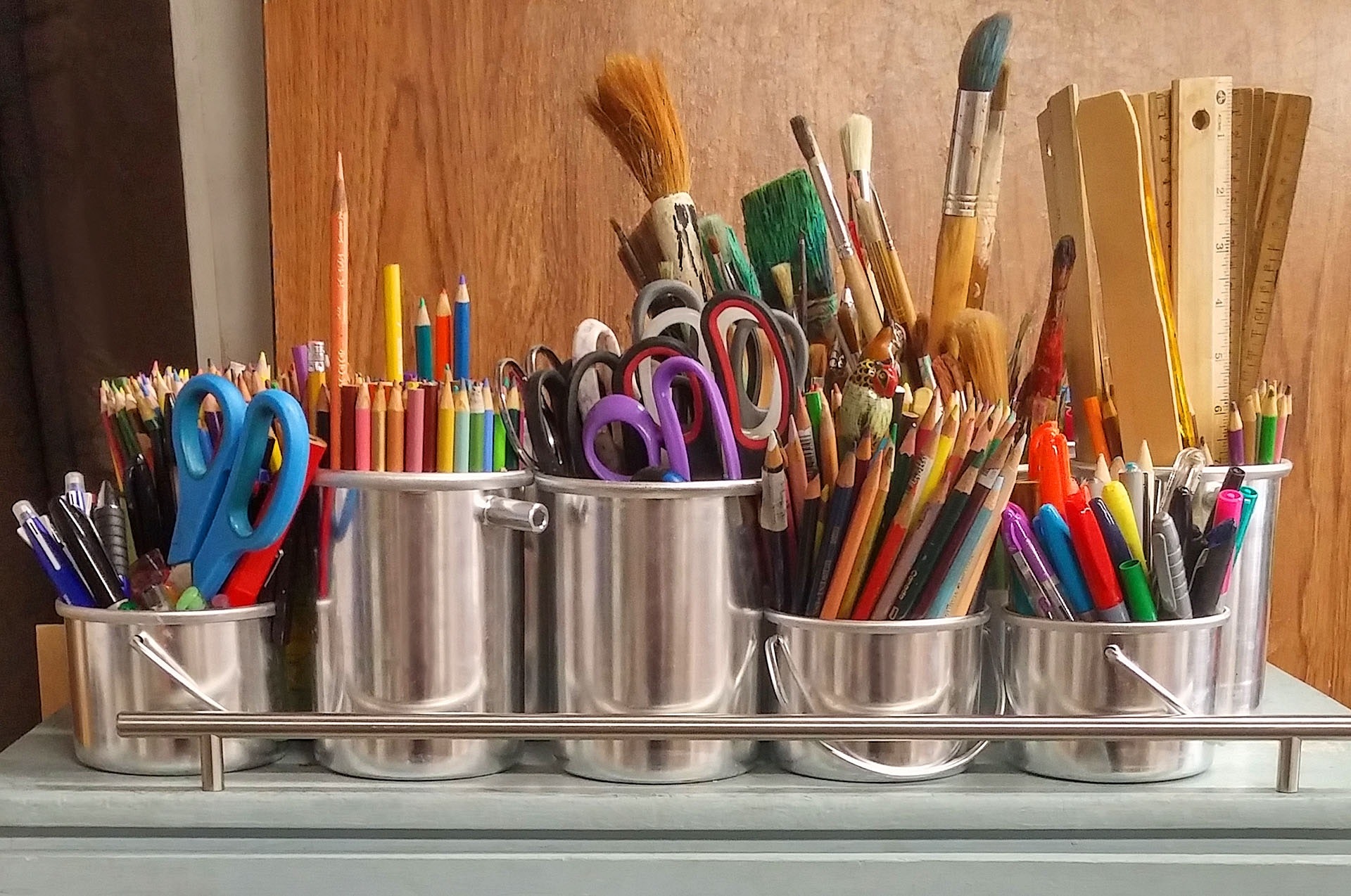
Depending on which year they are in and the subjects they will be studying, your child will need to provide their own supplies and the lengthy list of school equipment required for the coming academic year does seem strange initially. The list will be sent out at the end of the summer term or at la rentrée (the back to school period) and will include everything from paintbrushes to slippers, glue sticks and exercise books. These lists are often extremely specific, especially when it comes to art supplies and cahiers (exercise books); buy the wrong size and shape and both you and your child will be in trouble!
Most of the big supermarkets and office supply stores will have everything you require and there are lots of special offers. The office supply stores tend to be slightly more expensive but often offer a ‘click and collect’ service, which can be a lifesaver especially if you have multiple children who all need different items. The costs do add up but families in receipt of the family allowance equivalent ( les allocations familiales ) receive a special one-off payment; this is known as the ARS ( allocation rentrée scolaire ) and is a generous €392 for children aged 6-10, €413 for children aged 11-14 and €428 for the 15-18 age group.
Find out the 10 biggest differences between French and British schools and test your knowledge of school vocabulary with this quiz . Here are 12 things you need to know about French schools .
Looking for more guides on moving to France?
The unique mix of legal, financial and tax advice along with inspiring in-depth location guides, real life stories, along with the ‘ Living France ’ section that features an in-depth ‘Where to live guide’ plus the ‘Guide to…’ series covering all the essentials of life in France, makes French Property News magazine a must-buy publication for anyone serious about buying in and moving to France.

FrenchEntrée is your go-to resource for buying property and living in France – make the most of the comprehensive Buying in France and Living in France guides
Share to: Facebook Twitter LinkedIn Email
More in Education in France , Living in France
Related Articles
Can i work remotely in france for a uk company, visas & residency in france: making the move in 2024, janine marsh: spring in france, by catharine higginson.
EWTN News, Inc. is the world’s largest Catholic news organization, comprised of television, radio, print and digital media outlets, dedicated to reporting the truth in light of the Gospel and the Catholic Church.
- National Catholic Register
- News Agencies
- Catholic News Agency
- CNA Deutsch
- ACI Afrique
- ACI Digital
- Digital Media
- ChurchPOP Español
- ChurchPOP Italiano
- ChurchPOP Português
- EWTN News Indepth
- EWTN News Nightly
- EWTN Noticias
- EWTN Pro-life Weekly
- Register Radio
Get HALF OFF the Register!
National Catholic Register News https://www.ncregister.com/news/french-government-seeks-to-ban-home-schooling

- Synod on Synodality
- Most Popular
- Publisher’s Note
- College Guide
- Commentaries
- Culture of Life
- Arts & Entertainment
- Publisher's Note
- Letters to the Editor
- Support the Register
- Print subscriptions
- E-Newsletter Sign-up
- EWTN Religious Catalogue
French Government Seeks to Ban Home Schooling
The rise in Islamic extremism in France and the coronavirus pandemic have laid the groundwork for an increasing interference of the state in the nation’s educational system.

PARIS — The legitimacy of the practice of home schooling has been openly challenged by the French government through its recent draft bill “ Reinforcing Republican Principles ,” introduced in the Council of Ministers in December 2020.
Designed to address, in particular, the rise in Islamic extremism and the associated phenomenon of “separatism” (especially in the aftermath of the beheading of school teacher Samuel Paty for showing his class a cartoon depicting Muhammad), the bill also introduced significant restrictions with regard to freedom of education.
Indeed, the educational component of the bill notably establishes the principle of compulsory schooling for children from the age of 3 to 16, as well as the ban on home schooling, that would be permitted from 2022, “only for medical or material reasons or in case of a special situation of the child.” Until now, a simple declaration by parents to local authorities, accompanied with regular inspections, has been sufficient.
With approximately 62,000 home-schooled children (according to the figures compiled by the Ministry of Education in September 2020), of which 30,000 are children with special needs, France is currently a leading country with regard to home education in Europe, together with the United Kingdom. If the law were to be definitively adopted, more than half of these 62,000 children would have to leave the home-school path within two years.
No Relation Between Communitarianism and Homeschooling
For the supporters of the home-schooling system, the motivations for such legislation are not justified by the reality of the field. In fact, during a Jan. 15 hearing at the National Assembly, the head of the central intelligence within the territorial jurisdiction of the National Police Board, Lucile Rolland, said it was “extremely complicated” for her to make a “direct connection between the increase in communitarian attitude and the increase in home schooling.”
In the French context, “communitarianism” is a pejorative term that currently is applied primarily to politicized Islamist leaders and groups who push, sometimes violently, for social autonomy from the values that prevail in France’s secularized contemporary society.
Earlier in January, in another hearing at the National Assembly, the current French Defender of Rights , Claire Hédon, claimed that there was “no incompatibility in principle between a republican school and the freedom left to parents to choose the practical arrangements for their child’s education.”
While stressing that the bill would call into question several constitutional freedoms (such as the freedom of association, the freedom of conscience, worship and opinion) she noted that “the impact study provided no clear elements nor visibility on the profiles of the children and families concerned,” and that she had therefore “several reservations on the compatibility of the provisions introduced by the bill with the parents’ freedom to teach.”
Adopted on first reading by the Parliament on Feb.16, this section of the bill was rejected by the mostly conservative Commission for Education and Culture of the Senate, March 16. The full Senate is due to vote on it at first reading Thursday. In case of disagreement between the two Chambers, the Parliament will have the last word.
Regardless of the outcome of this legislative debate, for the various representatives of associations of parents home schooling their children, the introduction of such a bill has been revealing an underlying hostility on the part of the government against freedom of education.
In an interview with the Register, the secretary general of the Liberté éducation association, Jean-Baptiste Maillard, said that the bill was conceived amidst a backdrop of infringement to individual freedom in the country, and that rise in religious extremism and of social “separatism” served as a pretext for the government to seek to end to the growing home-schooling movement in the country.
Maillard supported his position by asserting that he never felt listened to during the Jan. 8 hearing he was granted at the National Assembly on behalf of his association, and said that there was no opportunity for dialogue.
“The government has been unable to provide figures that could show a correlation between the growing practice of home schooling and the rise in extremism in our society, despite the deputies’ requests,” he said. “And as far as we know, no school inspector was auditioned at the National Assembly, although 97% of their annual reports about home-schooled children are positive.”
The Return of ‘School War’?
But such divisions within the French society are not new, as the policy of the Social Democrat government led by President Emmanuel Macron has been consistently reflecting, in recent years, a will to grant the state greater influence over children’s education from the earliest stages of life.
In July 2019, the government already established the obligation of instruction from the age of 3. Shortly after, the French president created a special commission in charge of making of the first 1,000 days of the child’s life “a priority of the public action.”
“The controversy surrounding this new bill ‘reinforcing republican principles’ has revived the old debate that has been dividing the French society since the 1789 Revolution, that is: Who is in the best position to ensure the children’s greater good, the state or the family?” Anne Coffinier, the president of the groups “ Créer Son Ècole ” (Create One’s School) and “ EducFrance ” and founder of Foundation Kairos for Educational Innovation , told the Register.
She illustrated her point by mentioning a recent letter that Christophe Pacohil, the chief of staff to the minister of education, wrote in response to a parent who protested against compulsory education from the age of 3 and the new draft bill regarding home schooling.
While admitting that the phenomena of sectarianism or radicalization were very rare in the practice of home schooling, Pacohil said that the “deliberate choice” of families to home-school their children was “increasingly reflecting a desire to be on the bangs of society, to not or no longer want their children to mix with children of other backgrounds or faiths.”
Therefore, Coffinier commented, “it is the choice of home schooling that is fought in its very principle here, because it is seen as an anti-republican act of ‘social separatism’ in nature, and not because of its criminal misuse by radical Muslims.”
According to her, this same reasoning induced the minister of education to penalize the 4,000 pupils of the so-called lycées privés hors-contrat (private non-grant-aided high schools) by denying permission for them to benefit from exended assessment for the upcoming 2021 Baccalauréat exams, the degree that students obtain at the completion of their secondary education, in the context of the present COVID-19 health crisis and the subsequent school closures.
Her association “Créer Son Ècole” has initiated an emergency interim proceeding before the Council of State to have these pupils included in the continuous assessment plan, like all other high school pupils in France. The audience was supposed to be held on March 29 but was eventually postponed to April 8, while the Baccalauréat examinations are due to start on May 10.
“In such circumstances, it is difficult not to speak about a renewal of ‘School War,’” Coffinier continued, referencing the political debates surrounding the place of religion in education that rocked the nation in the 19th and 20th centuries.
“It is less pronounced than in 1984 when the Socialist government introduced a bill to make private schools disappear,” she added, “but when I see both the bill ‘reinforcing republican principles’ and the decisions taken for the 2021 Baccalauréat , it seems obvious to me that the Ministry for Education is trying to attack free schools and home schooling in order to slow down their growth.”
“There is such a crisis of confidence within the national education system nowadays that there is a clampdown on any form of alternative,” Coffinier said.
Popular Mobilization
Alongside the activists who are pressing politicians for educational freedom, families themselves have been willing to take actions to defend what they consider to be their constitutional right to educate their children according to their conscience, and collectively called on their deputies and senators in order to have the government’s policy reversed.
Across the Atlantic, families in the United States who are equally attached to freedom of education, have reached out to Jean-Baptiste Maillard’s Liberté Education group to express their strong support.
“We’ve received messages from American people saying they were praying for France as they got a lot out of home schooling themselves, it was so encouraging!” he said, highlighting the fact that “the strong popular mobilization aroused by this bill is explained by the fact that these public policies affect the deepest and the most intimate dimension existing between parents and their children, which is extremely problematic from multiple viewpoints.”
Maillard reckoned that there is a widespread awareness among the French population that what’s at stake goes far beyond the 62,000 children who are home-schooled today, and concerns all the children who might need home schooling at some point of their life in the future, even for short periods of time.
“We’re fighting for the future generations, to make sure that parents remain the first educators of their children — as the only countries where it is no longer the case are totalitarian regimes.”
- home schooling
- radical islam
- solene tadie

Solène Tadié Solène Tadié is the Europe Correspondent for the National Catholic Register. She is French-Swiss and grew up in Paris. After graduating from Roma III University with a degree in journalism, she began reporting on Rome and the Vatican for Aleteia. She joined L’Osservatore Romano in 2015, where she successively worked for the French section and the Cultural pages of the Italian daily newspaper. She has also collaborated with several French-speaking Catholic media organizations. Solène has a bachelor’s degree in philosophy from the Pontifical University of Saint Thomas Aquinas, and recently translated in French (for Editions Salvator) Defending the Free Market: The Moral Case for a Free Economy by the Acton Institute’s Fr. Robert Sirico.
- Related Stories
- Latest News

The Call of Catholic Schools to Open the Child’s Path to God
COMMENTARY: Parents who send their children to Catholic schools must remember that they have the most important role in the formation of their child — nurturing the seeds of faith to a deeper level in the home.

Home School the Catholic Way
5 Takeaways From 5 Years

Waffles for the Soul: How Home-Schooling Moms Are Using Liturgical Living to Teach Their Kids the Faith
The Church, of course, teaches that parents are the primary educators of their children.

Catholic Schools, Home Schooling Retain Pandemic Enrollment
Enrollment data reveals more families tried new educational options during height of COVID — and haven’t left.

Catholic Family Dedicated to Regenerative Agriculture Says Farming and Faith Go Together
With a “normal” suburban childhood, Dan said it was his mom’s faith and dedication to their family time that inspired him to seek a career that would allow him to spend his days with his wife and children.

He Is Our Source and Summit: An Afternoon Eucharistic Pilgrimage in St. Paul With 7,000 Friends
PHOTO ESSAY: We came together to witness to our belief in his Real Presence, to join in the Eucharistic Revival as Our Lord’s path passed through our town.

Carlo Acutis: What Did He Die of and Where is He Buried?
Acutis died at the young age of 15 in 2006 from acute promyelocytic leukemia (M3), which poses a much higher death rate than other forms of leukemia.

Why Byzantine Catholics Fast in June
By observing the Apostles’ Fast, we can share in the Apostles’ struggle and consider how we are supposed to spread the gospel.

Benedictine College Alumnae, Writer and Engineer, Applaud Butker Graduation Speech
Two young women, including one who works in the STEM field part time from home, weigh in.

Here’s What I Wish Harrison Butker Would Have Said
The Chiefs kicker missed an opportunity to mention our common call to evangelize.

The 3 Painted Churches of Hawaii
The churches of St. Benedict, Star of the Sea and St. Theresa are the gems of the beautiful Big Island of Hawaii
Carbon Dating Reveals True Age of Purported Tunics of St. Peter and St. John
‘soldier of christ’: calling leads army veteran to the priesthood, st. louis’ seminarian stronghold: bonds of brotherhood bear vocational fruit, after pope’s derogatory remark on gay men in catholic seminaries, vatican apologizes, ‘it pains me to leave’: pope francis accepts resignation of argentinian archbishop, collaboration brings vatican museums’ pieces to the united states in unique exhibition, from hinduism to catholicism: how soon-to-be-saint carlo acutis inspired a man to convert, ‘he’s coming’: joyous eucharistic pilgrimage visits new york, crosses brooklyn bridge, world children’s day: pope francis instills key lesson on holy spirit at mass with children, ‘may with mary’ in the vatican gardens, subscription options.

Subscriber Service Center Already a subscriber? Renew or manage your subscription here .
Subscribe and Save HALF OFF! Start your Register subscription today.
Give a Gift Subscription Bless friends, family or clergy with a gift of the Register.
Order Bulk Subscriptions Get a discount on 6 or more copies sent to your parish, organization or school.
Sign-up for E-Newsletter Get Register Updates sent daily or weeklyto your inbox.
The French School System Explained 👩🏼🏫
This is always a problem for my students. Understanding the French school system, l’école française, knowing which grades are which is a real nightmare. So here is a post that should make things easier. I wrote the equivalent grades in the US/UK school system, and the age of the students for reference.
Navigating the French school system and the equivalent US/UK grades can be tricky. Here’s an explanation of each French grades as well as related French school vocabulary and French school supply vocabulary.
How to Say School in French?
School, the generic term is l’école ( feminine , singular).
Leyla aime aller à l’école. Leyla enjoys going to school.
Now let’s see the different French school levels.

How to Say Preschool in French?
Preschool is l’école maternelle (la maternelle). Attendance to preschool is not compulsory in France.
Here are the different French preschool grades:
- La petite section de maternelle ou PS (3 ans) = Nursery.
- La moyenne section de maternelle ou MS (4 ans) = Pre-K (Reception UK)
- La grande section de maternelle ou GS (5 ans) = Kindergarden (Year 1 UK)
Read my thoughts about switching from an American to a French preschool system .
How to Say Elementary School in French?
Elementary school in French is “l’école primaire”, or “le primaire” and it is compulsory in France. This means that in France, kids 6 and up must go to school (see the paragraph below about homeschooling in France).
Here are the different French elementary school grades:
- Cours préparatoire ou CP (6 ans) = 1st Grade (Year 2 UK).
- Cours élémentaire 1re année ou CE1 (7 ans) = 2nd grade (Year 3 UK).
- Cours élémentaire 2e année ou CE2 (8 ans) = 3rd grade (Year 4 UK).
- Cours moyen 1re année ou CM1 (9 ans) = 4th grade(Year 5 UK).
- Cours moyen 2e année ou CM2 (10 ans) = 5th grade (Year 6 UK).
Les écoliers = elementary school children L’école is often used to talk about elementary school in French.
The teachers are called traditionally “ le maître ” and “ la maîtresse ” (be very careful with this word since it means “elementary school teacher” AND “a (woman) lover”… go figure…)
In elementary school in France, a main teacher teaches several “ matières (f)” such as le français, les mathématiques, la géographie, l’histoire, les sciences …
School Children Age in France
The age indicated in this article is the minimum age you are supposed to be when entering that grade.
Of course, it’s a bit flexible: Leyla is from November, so we had a choice: she could have been one of the youngest or one of the oldest in her class. With the agreement of the school director, she joined CP at 5, turning 6 in November and therefore finishing that grade age 6.
It could be the contrary as well: kids entering CP at 6, turning 7 that year: it’s the majority of the cases.
And some kids also repeat years (this is called “redoubler” in French).
Of course, there are always unique cases.

– Here we are! – Not already?!
What is the French Word for Middle School?
After elementary school, French kids start what we call “l’enseignement secondaire”.
It starts with “le collège” – Middle School. Kids usually attend Middle school in France from age 11 to 16. Some kind of formal education is compulsory in France till 16.
Here are the various French middle school grades:
- La sixième (11 ans) = 6th grade (Year 7 UK).
- La cinquième (12 ans) = 7th grade (Year 8 UK).
- La quatrième (13 ans) = 8th grade (Year 9 UK).
- La troisième (14 ans) = 9th grade (Year 10 UK).
The collège ends with a test called “ le brevet “.
Kids attending middle school are called “un collégien, une collégienne”
There are several “professeurs” (un professeur, always masculine even when referring to a woman teacher.
Camille est un bon professeur , but in slang, you can say “un/mon prof” or “une/ma prof”)
Middle school is also referred as “le premier cycle des études secondaires”.


Collège in French vs College in English
Watch out for the common French mistake:
- le collège = middle school
- la fac, la faculté, l’université = college
Confusing indeed!
The best way to memorize these kind of subtleties is to learn French in context. My beginner level audiobook A Moi Paris L1 has a chapter about middle school (ch 17), and in my intermediate audiobook method A Moi Paris L4 chapter 1 describes a typical day at a university.
Both French audiobooks clearly explain French and then illustrate the new grammar/ vocabulary points with a level-adapted bilingual French story recorded at 2 levels of enunciation (enunciated and modern).

A new approach to learning both traditional and modern French logically structured for English speakers.
More Details & Audio Samples
High School in France
High school in French is called “le lycée”. Students are about 16 to 18 years old.
Le lycée can be in general studies, with some specialty as in languages or sciences, leading to the diploma of Baccalauréat général (commonly called “le bac” – do say the “c”), or prepare you for a special trade (hairdresser, a cook, mechanic…) leading to CAP or BEP diplomas – you can stop at 16 years old – or to a Baccalauréat technologique.
Studies in France are compulsory until you reach 16 years old, but they can be in school or in some kind of study/apprentice program.
High school in France is sometimes referred to as “le second cycle des études secondaires”.
Here are the various French high school grades:
- La seconde (15 ans) = 10th grade (Year 11 UK).
- La première (16 ans) = 11th grade (Year 12 UK).
- La terminale (17 ans) = 12th grade (Year 13 UK).
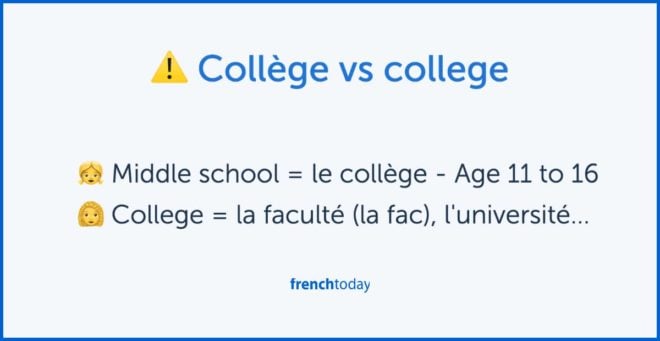
Higher Education in France
Higher education in France is generally called “l’enseignement (m) supérieur”.
French students then go for “des études supérieures” (higher studies) à la fac, à l’université (watch out this is college in French…) or in les Grandes Écoles (the French Ivy League: SciencePo, HEC, more … ).
You need to have le baccalauréat to get into these schools, and Les Grandes Écoles often require that you have “une mention” (honors of the jury) to get in, or that you pass a special test.
Homeschooling in France
Homeschooling in France is often called “Le homeschooling”. We also say “l’école à la maison” ou “la scolarisation à domicile”. Homeschooling in France is not illegal, but quite rare.
Most children that are home-schooled in France are so because their parents are traveling, or because the kids have a medical condition.
Homeschooling parents have to register with the French school authorities and potentially face yearly inspections/evaluations to make sure the children keep up with French educational standards.
How to Say to Take a French Class in French ?
In French you cannot say “French class”. Your class is not French itself: it’s a class about the French language. Saying “French class” is an idiom in English.
So translating word by word and saying: “une classe française” is a mistake.
So here are a few possible translations to talk about your French class:
- “Je suis un cours de français” (of the verb “suivre”: ‘to follow’) I’m taking a French class
- “Je fais partie d’une classe de français”, I’m enrolled in a French class
- “J’adore ma classe/mon cours de français”, I love my French class
- “Je déteste ma prof de français” I hate my French teacher
In any case, to say “French” for a class, it’s “ de français “, never “français/française”, which is my point :-)
More about how to translate French and France in French .
How to translate ‘I study French’ in French
To say ‘I study French’, here is what you can say:
- “J’étudie le français” I study French The name of the language is “le français”, and it’s masculine.
- J’étudie la langue française I study the French language “La langue” being feminine, the adjective “française” is also in the feminine.
Now let’s review the French school vocabulary we saw in this article and add additional French school terms.
French School Vocabulary
- La maternelle = preschool
- L’école primaire = elementary school
- Le collège = middle school
- Le lycée = high school
- L’université, la faculté (la fac) = college
- Un écolier, une écolière = elementary school child
- Le maître, la maîtresse = elementary school teacher
- Un collégien, une collégienne = middle school child
- Un professeur = teacher – always masculine
- Un prof, une prof = teacher, common slang
- Un lycéen, une lycéenne = high school child
- un étudiant, une étudiante = a student
- Les vacances – always plural in French – vacation
- La rentrée (des classes/ scolaire) – 1st day back to school
- Faire ses devoirs – to do one’s homework
- Suivre un cours de français/ une classe de français – to take a French class – watch out, you can’t say “un cours français/ une classe française”, it’s a class OF French (language) in French, the class itself is not French – more in this blog article.
- l’APEL – association des parents d’élèves (parent association)
- Le directeur, la directrice – principal
- La cantine – the cantine / cafeteria
- La récréation (la récré) – recess
- L’étude – study hall
- Une colle – detention
- Se faire coller – to be sent to detention
- Les notes – grades
20 French School Words For Supplies
- Les fournitures scolaires (f) – school supplies
- Un classeur – a binder
- Un cahier – a notebook
- Un livre – a textbook
- Un agenda – an agenda
- Une feuille de papier – a piece of paper
- Une copie double – I don’t know how to say that in English… it’s 2 pieces of paper together, so 4 sides total – we use them for exams
- Une trousse – a pencil case
- Un crayon (à papier / de couleur) – pencil / color pencil
- Un feutre – marker
- Un stylo, un bic (say the c) – a ball-point pen
- Un stylo plume – an fountain pen (ink) – yes, French kids still use these!
- Un effaceur – ink eraser + marker
- Une gomme – an eraser
- Une calculatrice – a calculator
- Une règle – a ruler
- Un tableau – black/white board
- Une craie – a chalk
- Un sac à dos – backpack
- Un bureau – desk (un pupitre is quite old-fashioned)
Voilà, I hope you’ll find this article useful.
I post new articles every week, so make sure you subscribe to the French Today newsletter – or follow me on Facebook , Twitter and Pinterest .
You may also enjoy:
- My thoughts comparing French and American preschool systems
- Back to School Poem
Camille Chevalier-Karfis
Born and raised in Paris, I have been teaching today's French to adults for 25+ years in the US and France. Based on my students' goals and needs, I've created unique downloadable French audiobooks focussing on French like it's spoken today, for all levels. Come to Paimpol and enjoy an exclusive French immersion homestay with me in Brittany .
More Articles from Camille Chevalier-Karfis
You Might Also Enjoy...

More free lessons
A bit of French culture
- French table etiquette
- Being a polite house guest in France
- How to ask where is bathroom in French?
- What to do if you are sick in France?
- French school system explained
- Catholic mass prayers in French
- Madame or Mademoiselle?
- How to dress in Paris?
- Paris Subway audio guide
French Traditions Even wonder how the French spend these holidays?
- Christmas in France
- A French New Years eve
- Valentine’s day
- April’s fool
- French Easter
- Mother’s day
- Bastille day
- Thanksgiving
- Halloween in France
I publish posts every week. Want to keep up to date with the new content? ✉️ Subscribe to my weekly newsletter
Recorded at 3 different speeds + Study Guide + Q&A + Full Transcript
Copyright - French Today 2024
- Privacy Policy
- Mentions Légales
- Affiliate Program
Can You Understand Today’s Spoken French?
It’s not just slang. The French everybody speaks in France today is NOT the overly enunciated, extremely formal French usually taught to foreigners.
TAKE YOUR FREE AUDIO TEST NOW
- Countries Who Spend the Most Time Doing Homework
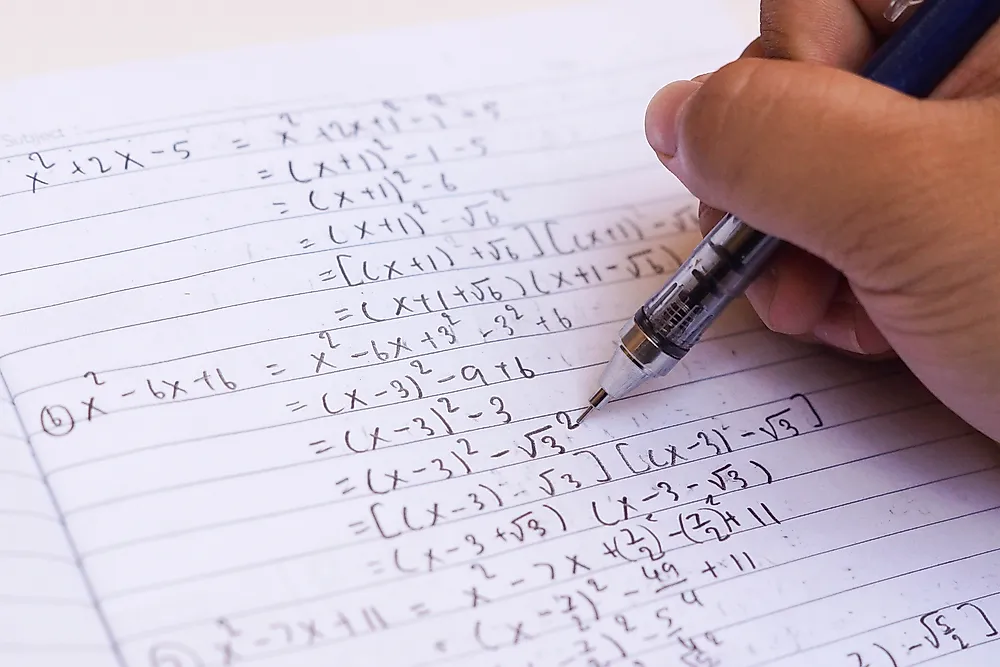
Homework is an important aspect of the education system and is often dreaded by the majority of students all over the world. Although many teachers and educational scholars believe homework improves education performance, many critics and students disagree and believe there is no correlation between homework and improving test scores.
The Organization for Economic Cooperation and Development (OECD) is an intergovernmental organization. With headquarters in Paris, the organization was formed for the purpose of stimulating global trade and economic progress among member states. In 2009, the OECD conducted a detailed study to establish the number of hours allocated for doing homework by students around the world and conducted the research in 38 member countries. The test subjects for the study were 15 year old high school students in countries that used PISA exams in their education systems. The results showed that in Shanghai, China the students had the highest number of hours of homework with 13.8 hours per week. Russia followed, where students had an average of 9.7 hours of homework per week. Finland had the least amount of homework hours with 2.8 hours per week, followed closely by South Korea with 2.9 hours. Among all the countries tested, the average homework time was 4.9 hours per week.
Interpretation of the data
Although students from Finland spent the least amount of hours on their homework per week, they performed relatively well on tests which discredits the notion of correlation between the number of hours spent on homework with exam performance. Shanghai teenagers who spent the highest number of hours doing their homework also produced excellent performances in the school tests, while students from some regions such as Macao, Japan, and Singapore increased the score by 17 points per additional hour of homework. The data showed a close relation between the economic backgrounds of students and the number of hours they invested in their homework. Students from affluent backgrounds spent fewer hours doing homework when compared to their less privileged counterparts, most likely due to access to private tutors and homeschooling. In some countries such as Singapore, students from wealthy families invested more time doing their homework than less privileged students and received better results in exams.
Decline in number of hours
Subsequent studies conducted by the OECD in 2012 showed a decrease in the average number hours per week spent by students. Slovakia displayed a drop of four hours per week while Russia declined three hours per week. A few countries including the United States showed no change. The dramatic decline of hours spent doing homework has been attributed to teenager’s increased use of the internet and social media platforms.
More in Society
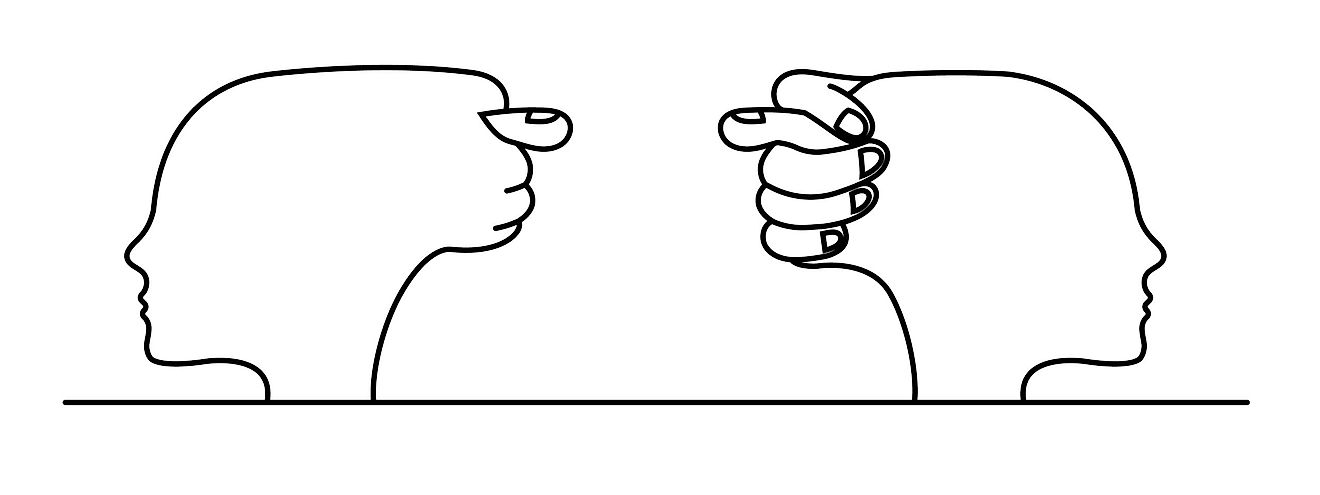
"Hell Is Other People," What Did Sartre Mean By That?
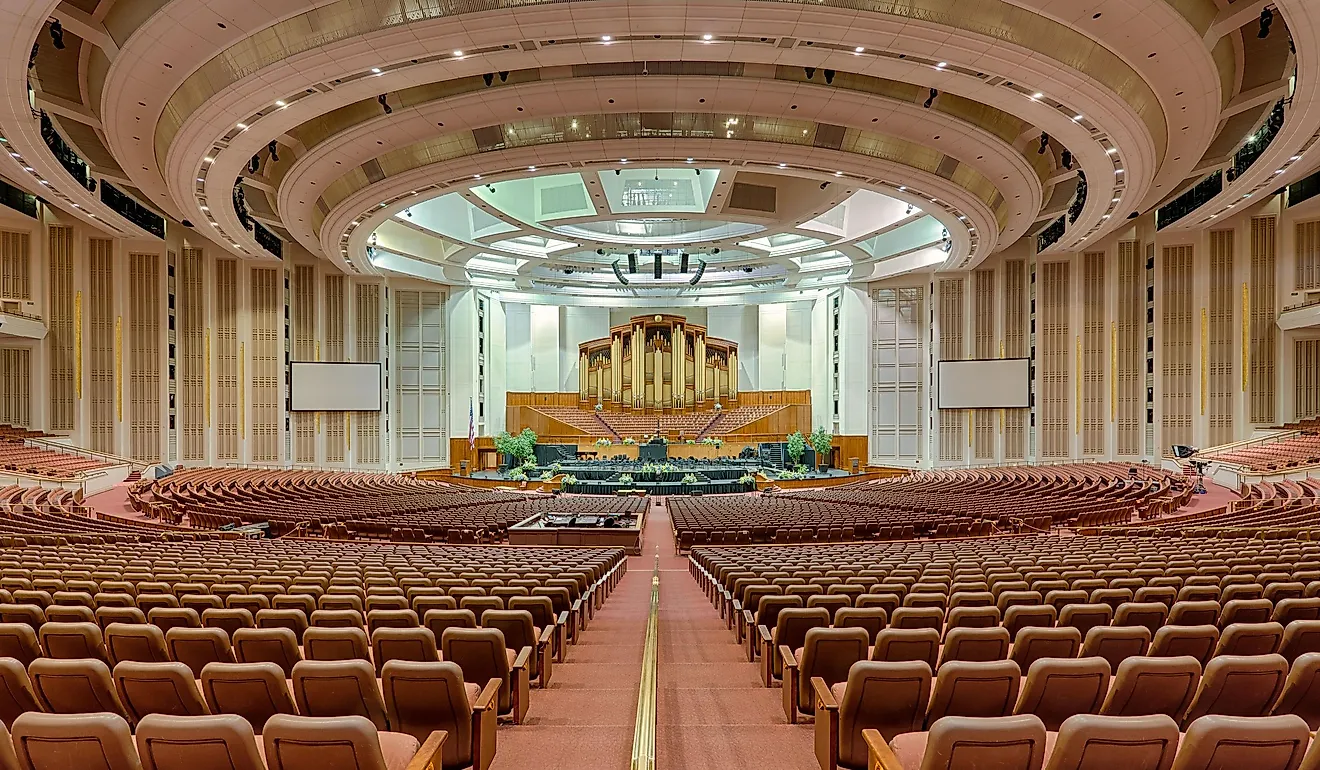
The Largest Megachurches In The US

The Biggest Stadiums In The World

How to be Happy According To Aristotle
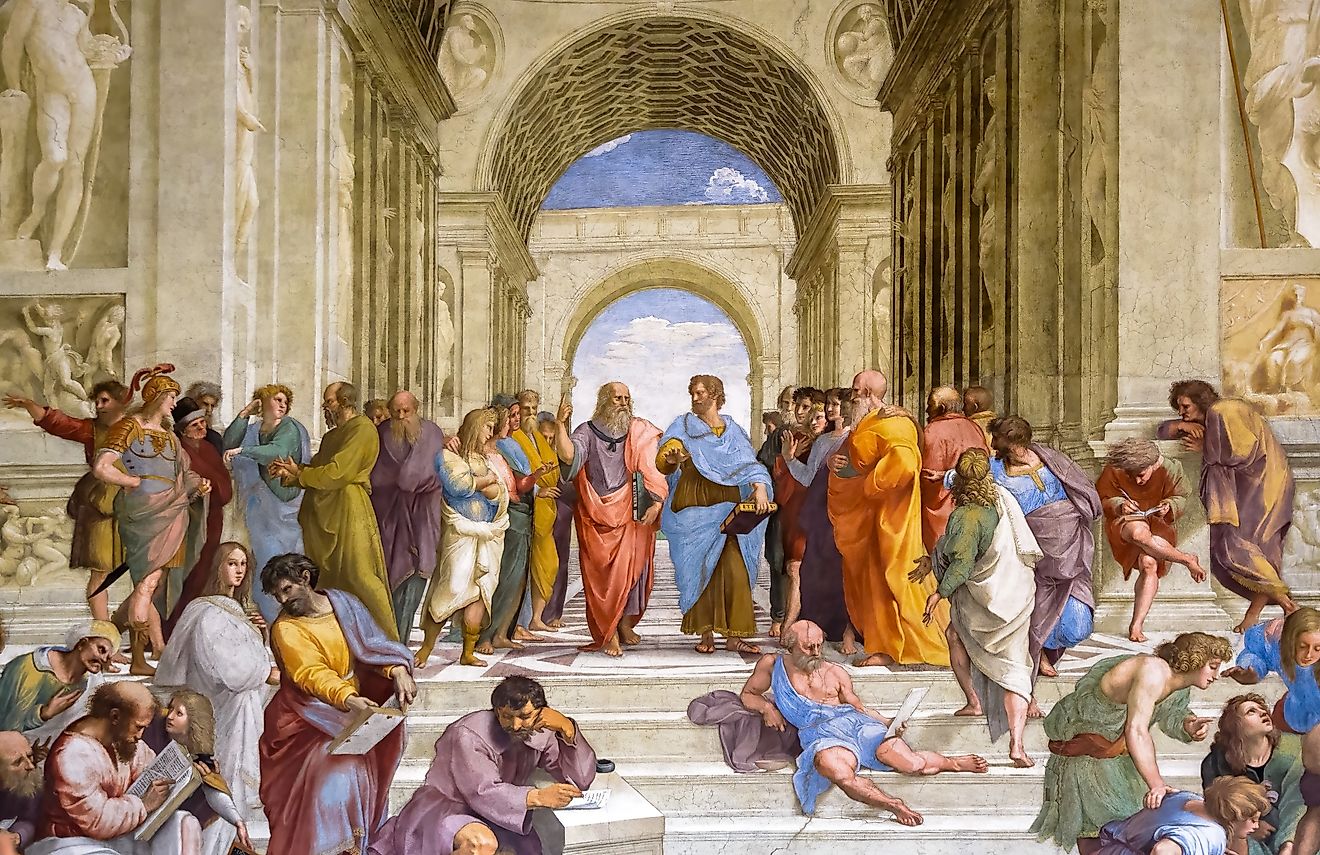
What is the Ideal World According to Famous Philosophers?
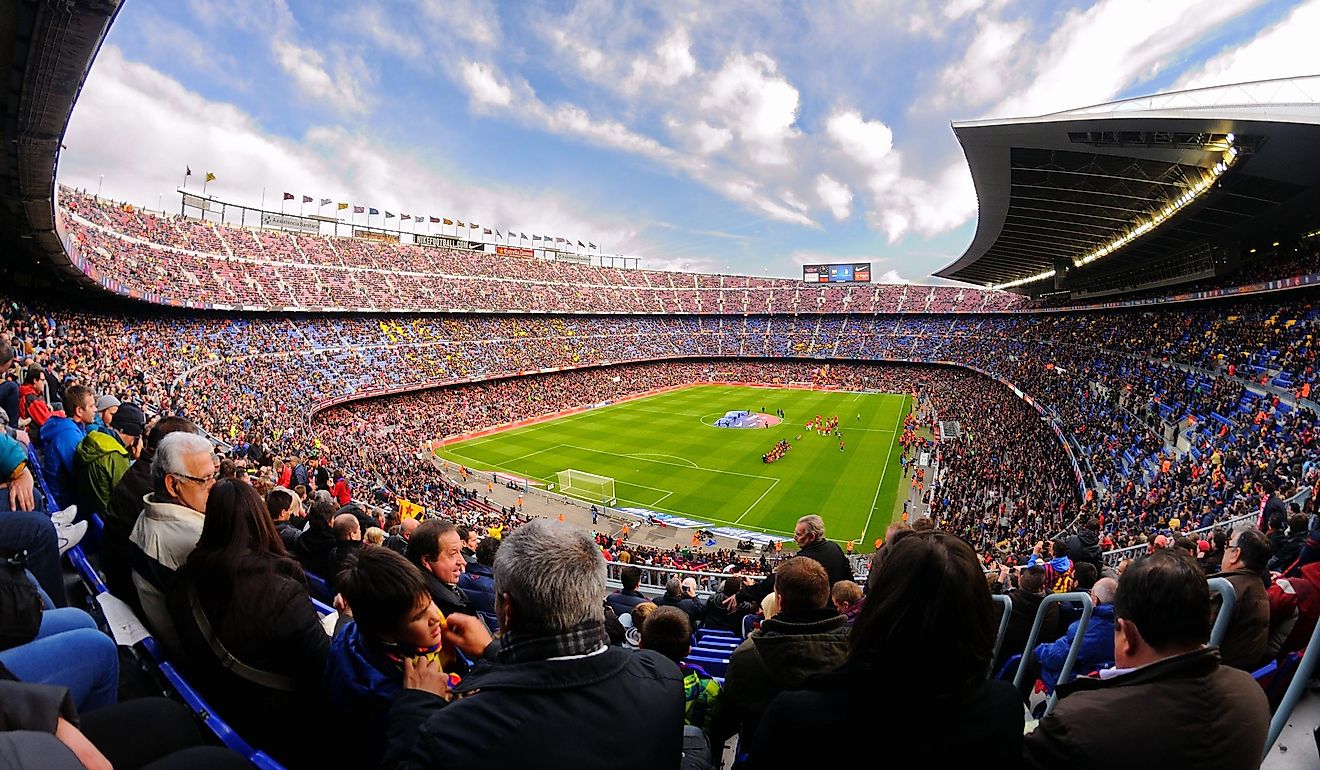
The 10 Largest Soccer Stadiums In The World

Understanding Stoicism and Its Philosophy for a Better Life

Countries With Zero Income Tax For Digital Nomads
Learning Diversity
- For Parents
- For Teachers
- Profession Development
- Book Reviews
- Student Perspectives
- Lesson Plans
France’s Homework Ban and the “Dos and Don’ts” of Homework
Posted by Jason Przypek, Editor on Tuesday, December 18, 2012 · 42 Comments
Those of you who follow such things as our reports on Alfie Kohn’s controversial condemnation of homework, you probably noticed that French president Francoise Hollande’s proposal to ban homework . Of course the two camps in the debate predictably unleashed their arguments. Hollande added a bit of a socialist twist with the argument that homework is unfair to underprivileged families since they don’t have as many resources at home to help their kids. There was a backlash from some working class families arguing that homework is a free, state-provided resource that the proposal would deprive them of.
Of all the predictable and surprising arguments fielded what is notable is a lack of moderation. But even the strongest opponents of routine homework as heretofore administered, admit that research shows a positive correlation between homework and academic attainment, albeit modest, in secondary schools, and even Alfie Kohn does not oppose carefully crafted, constructive tasks assigned to be done outside the classroom. Common sense would seem to dictate neither an outright ban nor business as usual, but a more aware approach. At its worst homework is a stressful, discouraging burden of dubious value on students and families as well as on the teachers who have to correct and grade it, but it doesn’t have to be so.
The “Dos and Don’ts of Homework
1) Homework should truly supplement educational objectives: no “busy work”
2) It should not be overly burdensome to students and families. There should be support for homework completion for students who need it in the form of after-school tutoring or supervised study halls.
3) No tasks should be assigned for completion outside of class without first having provided adequate instruction for its completion in class. Most parents are familiar with the feeling of helpless frustration of hearing from their kids that they have no idea how to even go about completing a homework assignment.
4) There should be supports provided for students that help promote time-management and organization, i.e. assignments should be broken down into manageable steps, instructions should be explicit and goals clear, use of planners or other tools should be encouraged.
In general, if any assignment does not clearly and manageably promote the goal of deeper understanding and of encouraging life-long learning with the necessary support for the student to benefit then it should certainly be reconsidered.
But if a school makes it a matter of course to take learning beyond the classroom with thoughtfully crafted assignments within a supportive context that takes into consideration the academic and organizational needs of each student, that school has found a way to enhance learning beyond the limitations of class time and setting.
Category: Editorials , News · Tags: Alfie Kohn , France , Hollande , homework
42 responses to “France’s Homework Ban and the “Dos and Don’ts” of Homework”
cialis online pharmacy
is there a generic cialis
viagra generic
viagra for sale
cheap viagra
pills erectile dysfunction
online ed medications
mens erection pills
top rated ed pills
cheap erectile dysfunction pills online
best otc ed pills
buy generic cialis
buy cialis generic
best online pharmacy
canadian online pharmacy
cialis online
vardenafil pill
generic vardenafil
vardenafil usa
buy levitra
vardenafil canada
buy vardenafil online
real money online casinos usa
slot games online
real money casino
casino slots gambling
online viagra prescription
sildenafil 20 mg
san manuel casino online
online gambling
slot machines
generic cialis online
purchase cialis
cash payday
personal loans
short term loans
cash advance online
viagra cost
viagra pills
5 mg cialis
cialis 5 mg
generic for cialis
generic cialis
cialis internet
cialis to buy
casino slot games
online casino real money
best online casino
casino world
hollywood casino
online casino usa
rivers casino
play for real online casino games
sildenafil 100mg
viagra for women
generic viagra cost
generic sildenafil
online pharmacy viagra
tadalafil citrate
cialis coupon
generic tadalafil
buy cialis online safely
casino online real money
best real casino online
best online casino for money
Buy brand viagra
Brand name viagra
Canadian healthcare viagra
Order viagra without prescription
Viagra next day delivery
Buy viagra no prescription
Best prices on viagra
Leave a Reply Cancel reply
Your email address will not be published.
Save my name, email, and website in this browser for the next time I comment.
- Contributors
- Eagle Hill School
- Learning Diversity on Facebook
- Learning Diversity on Twitter
- The EHS Institute for Teacher Training
Copyright © 2024 · All Rights Reserved · Learning Diversity
Magazine Theme v4 by Organic Themes · WordPress Hosting · RSS Feed · Log in
- Create new account
- Reset your password
Register and get FREE resources and activities
Ready to unlock all our resources?
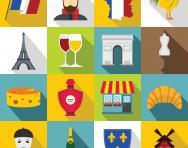
France is a country in western Europe. It is the third-largest country in Europe , about twice the size of the United Kingdom.
The capital city is Paris and the main language is French.
France is the most visited country in the world, with more than 80 million tourists a year!
France has a long and interesting history and is famous for its food, fashion, culture, art and advances in science and philosophy . It is a major economic power and also known for its sporting success.
Top 10 facts
- The official name of France is République Française (French Republic).
- Paris, the capital city, has 2.2 million inhabitants (a fifth of the French population).
- There are lots of different landscapes in France, from grassy plains to mountain ranges and a very long coastline.
- The currency used in France is the European euro.
- France is famous for its food, especially its breads, cheeses and cakes.
- On 14 July French people celebrate Bastille Day, the national day of France, with parties and fireworks.
- France used to be an important colonial power, and 29 countries in Africa and the Caribbean still retain French as their official language.
- The Gallic rooster is the national symbol of France and the main religion is Christianity.
- The Tour de France is a famous cycling race in which cyclists travel over 3200km in 21 days. Around 15 million people line the route to watch the race!
- The French Revolution, which began in 1789, ended the monarchy (the rule of kings and queens) in France and established many of the basic human rights that are at the heart of our modern world.

Start your child on a learning programme today!
- Weekly English, maths & science worksheets direct to your inbox
- Follows the National Curriculum
- Keeps your child's learning on track
Did you know?
France is home to two of the most important mountain ranges in the world , the Alps and the Pyrenees. Mont Blanc in the Alps is the tallest peak in Europe, 4,810 meters above sea level. France takes its name from the Franks, the group of people who lived in France after the Romans. The famous Louvre Museum in France has over eight miles of galleries! A third of French land is farmed. France is one of the world's largest wine producers. There are over 400 different varieties of French cheese. Every year 2 million tonnes of cheese are consumed in France (26kg per person, per year)! One French cheese, Epoisses de Bourgogne, is so smelly that people aren't allowed to take it on public transport. When the Eiffel Tower was completed in 1889 it was only supposed to be a temporary monument. Since then around 250 million people have climbed it. At night the Eiffel Tower is lit by 20,000 light bulbs! Popular sports in France are cycling, skiing and pétanque , a lawn bowls game. Jeans are made of a special type of material called denim, which originally came from the French city of Nîmes (in French, 'de Nîmes' means from Nîmes). The Channel Tunnel linking Britain and France, which has been named one of the wonders of the modern world, took more than 13,000 UK and French workers more than five years to complete. The world-famous abbey of Mont St Michel was built around 500 years ago. The royal palace of Versailles has 700 rooms and 67 staircases!
Look through the gallery and see if you can spot the following:
- Paris at night
- The Louvre Museum in Paris
- Courchevel is a skiing resort in France
- The Palace of Versailles
- French cheeses
- The French flag
- Château de Chambord at Chambord, Loir-et-Cher
- The Tour de France
- The Pont du Gard in Provence
- Mont Saint Michel in Normandy
- The Eiffel Tower
- The French Alps
- Lavender fields in the south of France

One of the largest and most influential countries in Europe , France shares borders with Belgium, Luxembourg, Switzerland, Italy and Spain . The Western side of France borders the English Channel and the Atlantic Ocean and the southern coast is with the Mediterranean. The Channel Tunnel, which links Britain to mainland Europe, opened in 1994. French territories are not all close together! Corsica is an island off the south-east coast which belongs to France, even though it is closer to Italy than it is to France. La Réunion is a French island off the coast of Madagascar, 9000km from France! Paris, the French capital, is the largest city, but there are more than 800 cities and towns in the country (Marseille, Lyon, Toulouse, Nice and Nantes are the largest). Today, France is a republic, with a government elected by French voters . For a thousand years, however, France was ruled by a monarchy. In the late 18th century there was an uprising of ordinary people in France, tired of the way the royal family and the court lived in splendour while poor people suffered. On 14 July 1789 the people stormed and captured the Bastille prison in Paris, beginning the French Revolution. Thousands of aristocrats and royals were executed and the people took control of the government of the country. After the Revolution a new person came to power: Napoleon Bonaparte, a military man, ruled France from 1799 to 1814 . He declared himself Emperor and began to conquer other areas of Europe. After the Battle of Waterloo in 1815, when Napoleon was defeated by the Duke of Wellington, Napoleon was sent into exile. In 1871, France became a republic. France has more farmland than any other country in Western Europe. Crops include wheat (used to make many different kinds of bread, which are baked fresh every day), apples and grapes, olives, tomatoes, citrus fruits, herbs, onions and garlic. The region of Normandy is famous for its dairy products; France produces so many cheeses that you could eat a different one every single day of the year! France is famous for its delicious food and drink. There are lots of regional specialities, including frogs' legs, quiche Lorraine (egg and bacon tart), coq au vin (chicken and wine casserole), cassoulet (a stew made with beans and meat), escargots (snails cooked in garlic butter) and moules (mussels). In mountain villages, people eat fondue (bread dipped in hot melted cheese) and on the coast a popular dish is bouillabaisse (fish soup). Macarons are brightly coloured sweet treats. French industry leads the world in aviation and space technology. Michelin, the world's largest tyre producer, has its headquarters in France. Perfume is also a very big industry; fragrant plants like lavender are grown in France and used to produce fragrances. There are lots of festivals and parades in France. Bastille Day, 14 July, is a national holiday. Most people in France are Roman Catholics , and many of the festivals and feasts are linked to religious celebrations. During Mardi Gras (French Carnival, at the beginning of Lent which is the 40 days before Easter) people dress up in costumes and have street parties. On the Fête des Rois , celebrated on 6 January, Christians remember the three kings who visited baby Jesus and brought him gifts. Everyone in France eats a special cake on la Fête des Rois – it has a charm hidden inside it and whoever finds it on their plate can wear a crown and be a king or queen for the day! Football is the most popular sport in France; Thierry Henry is a very famous player. The Tour de France is a world-famous cycling race which takes place every year. The cyclists travel all around France and people line the route to watch them cycle past. France has produced lots of actors, musicians, writers and composers. Works by French painters like Claude Monet, Edgar Degas, Paul Cézanne and Pierre-Auguste Renoir are exhibited in museums all over the world.
Related Videos
Just for fun...
Try cooking (and eating!) some delicious French cuisine specialties Do some French-themed colouring-in French printables and crafts from Activity Village Make your own miniature Paris in paper or make your own paper models of the Eiffel Tower , Notre Dame or the Arc de Triomphe Find out how children celebrate Epiphany Day in France French songs, quizzes and information to download Asterix is a world-famous French cartoon character Learn to sing some children's songs in French Practise your French with lots of French-language wordsearches and puzzles
Best books about France for children

Find out more
Read the National Geographic Kids guide to France Listen to a Penguin Explorers podcast about France from Fun Kids Look through the France Facts for Kids in the Kiddle Encyclopedia Watch a BBC Primary Geography introduction to France video Bake your own Galette Des Rois and find out about this Epiphany cake's traditions Read about French traditions at Christmas and at Easter April Fool's Day is celebrated in France. What jokes would you play on family and friends? Explore the lives of famous French people A kids' guide to the Tour de France
See for yourself
Lonely Planet has a guide to the most famous French sites and experiences Every evening, the Eiffel Tower sparkles with lights for 5 minutes every hour on the hour: see pictures! Discover French regions like Brittany, Normandy and Provence

Give your child a headstart
- FREE articles & expert information
- FREE resources & activities
- FREE homework help
- Notifications For Interests:
- Interests See All
French President Proposes Banning Homework
Credit: Christophe Ena/AFP/Getty Images
Talk about courting the youth vote. French President François Hollande has proposed banning homework as part of a series of policies designed to reform the French educational system.
"Education is priority," Hollande said in a speech at Paris's Sorbonne University. "An education program is, by definition, a societal program. Work should be done at school, rather than at home."
The justification for this proposed ban? Inequality. According to a statement from an official at the French Embassy, "When it comes to homework, the President said it should be done during school hours rather than at home, in order to establish equal opportunities." Homework favors the wealthy, Hollande argues, because they are more likely to have a good working environment at home, including parents with the time and energy to help them with their work.
Hollande's education proposal is not limited to a homework ban. According to the embassy, Hollande has also pledged to add 60,000 teaching jobs in the next five years. He has also expressed support for extending the school week by establishing a model in which children would attend school for nine half days a week. Schools would be able to decide if this is spread over four, five or even six days, in consultation with local authorities and parents.
French children typically go to school for 36 weeks out of the year. The school day is roughly as long as an American workday, lasting from 8:00 to 4:00 or later. However, in most schools the week is only four days, with Wednesdays off in addition to Saturday and Sunday.
Hollande's proposals are not official yet; they're part of an ongoing national debate about reforming the education system, which is, according to the 2009 Program for International Student Assessment, ranked 21st in reading, 22nd in math and 27th in science among countries in the OECD (Organisation for Economic Development and Co-operation). The United States ranks 17th, 31st, and 23rd in those respective categories.
- Open Search Search
Home / News / The Journey of Language Learning: From Mispronouncing “Merci” to Living in France
The Journey of Language Learning: From Mispronouncing “Merci” to Living in France
Friday, May, 24th, 2024 Alumni Reflections Food and Culture Uncategorized

Emma Davis enjoys the sunset as an English Teaching Assistant in Nice, France (2022).
I started my journey of learning French when I was 12 years old, and like many young students I had to decide whether to take French or Spanish. It was an easy choice for me — the French class went on a trip to French-speaking Quebec, the Spanish class did not. So began my decade-long journey of learning French, a surprising experience that ended with living and working in the south of France and the Tufts European Center.
I always struggled with French. How does such a language exist where there are words with five vowels? ( Oiseaux , the plural of “birds,” not only has five vowels, but also is pronounced like “wa·zo.” To this day, this doesn’t make sense to me.) The grammatical rules were enigmatic, and I always felt like a fool trying to do something as simple as ordering coffee. Even at Tufts University, my traditional French courses were always my most challenging courses. I quickly realized that my dream of being fluent would always be out of reach, and I resigned myself to being able to barely understand the lyrics to “La Vie en Rose.”
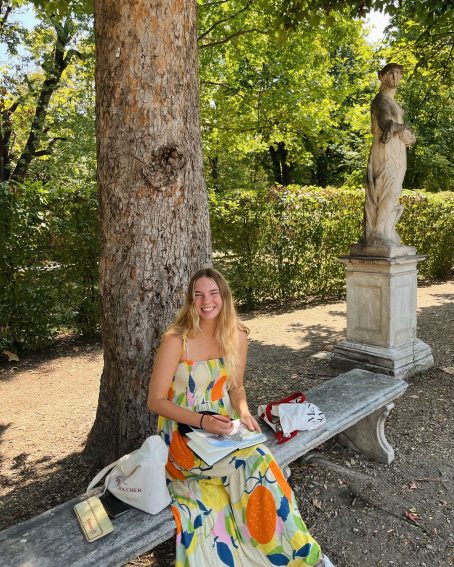
Emma Davis paints in Turin, Italy after the first summer working at the Tufts European Center (2022).
Then in 2019, I was lucky enough to live with a host family for the Tufts in Talloires program and everything changed. Over many awkward dinners of struggling to express how much I loved the food; I slowly but surely improved my French. I made (many) errors, but I grew my confidence. And most importantly, I forgave myself for not being perfect. It was an experience that not only taught me how to properly use subjunctive, but how to be comfortable with failure.
My French rapidly improved when I returned to Talloires in the summers of 2022 and 2023 to work as an intern. As a member of staff, I used my French for the first time in a professional setting. Continuing my early professional life in France, I worked for two years in the South of France as an English Teaching Assistant in middle school. It was a full circle moment; where once I was the middle schooler struggling with French, now I was the teacher. Knowing my own struggle of learning a language, I never laughed at silly mistakes and focused on encouraging speaking over perfection. Living and working in France has allowed me to learn French at my own pace and in surprising ways, and it all started thanks to a summer in Talloires.
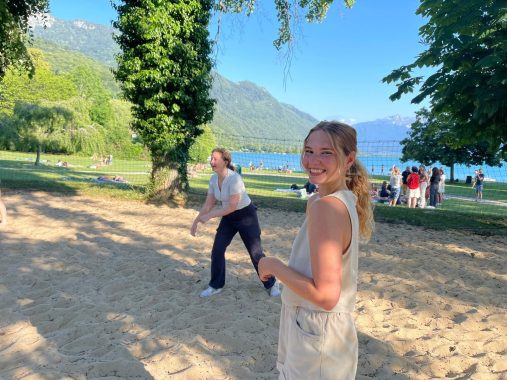
Emma Davis enjoys the local Talloires beach with fellow staff members in summer 2023.
I am excited to return to the Tufts European Center as the Senior Program Assistant for the upcoming summer. It is n o exaggeration that Talloires changed my life. Without that first summer, I would never be as confident speaking (still accented and imperfect) French as I am today. I hope to help others receive the same impact that experiential language learning had on my life.
- Newsletters
- Account Activating this button will toggle the display of additional content Account Sign out
Real Things: French President Wants To Ban Homework for “Equality”
In a move that will have children across America begging their parents to move to France, French president Francois Hollande has proposed a ban on homework. Hollande suggested the take-home-study prohibition as part of his plan for education reform. The recently elected socialist party leader said “an education program is, by definition, a societal program. Work should be done at school, rather than at home.” He added that the homework ban was a matter of equality, since wealthier children have parental support at home that poor children do not. But parents in France are saying je crois que non , with two-thirds of the country opposing the plan. If only Mr. Hollande was able to lower the voting age—he’d have a powerful new bloc.

- DIGITAL MAGAZINE
MOST POPULAR
France facts
Learn about one of europe’s most amazing countries.
Ooh la la ! Ready for the lowdown on one of Europe’s most amazing countries? Then check out our fascinating facts about France …

Facts about France
Official Name : French Republic Form of government : Republic Capital : Paris Population : 67, 092, 056 Official languages : French Monetary unit : Euro Area : 543,965 square kilometres Major mountain ranges : Alps, Pyrenees, Massif Central Major rivers : Seine, Rhine and Rhône
French flag
Map of france, france: geography and landscape.
The largest country in Western Europe, France has long been a gateway between the continent’s northern and southern regions. Its lengthy borders touch Germany and Belgium in the north, the Atlantic Ocean in the west, and the Pyrenees mountains and Spain in the south. It also borders the Mediterranean sea in the southeast, and the Alps , Switzerland and Italy in the east.
France has a very diverse landscape. There are beautiful beaches on the southeast coast, home to the French Riviera , and towering mountains in the south and east, where the snow-capped French Alps rise to the sky. Europe’s tallest peak, Monte Blanc , is found in the French Alps, standing at a massive 4,810m tall!
Wide, fertile plains dominate most of the north and west, making France the agricultural epicentre of Europe. The sprawling, forested plateau of the Massif Central – a range of ancient mountains and extinct volcanoes – occupies France”s southern interior.
France’s nature and wildlife
France has lots of land area to provide habitat for a wide variety of plants and animals. More than 25 percent of its territory is covered with forest, and another 50 percent is countryside or farmland.
Lowland forests are home to deer and wild boar, while the woodlands of the Alps and Pyrenees provide refuge for rare chamois antelope, ibex, brown bears and alpine hares, among many other species. The Mediterranean coastline is a stopover for millions of migrating African birds, too, including flamingos, vultures, egrets and bee-eaters.
The French government has made a broad commitment to preserving open spaces and the wildlife they contain. In fact, about ten percent of the country has been set aside as national or regional parklands and nature reserves.
The history of France
There is evidence that early relatives of humans first settled in France nearly two million years ago. By 300,000 B.C., Neanderthals arose there, and by 40,000 B.C., Cro-Magnons had arrived.
Over time, Celtic tribes from central Europe moved into the region, and when the Romans occupied the territory in the second century B.C., they named it Gaul . Julius Caesar established full Roman control over Gaul in 51 B.C., but by 400 A.D. Rome was in decline. Gaul was attacked by neighbouring tribes, including Visigoths, Vandals and the Germanic Franks, from which France would eventually get its name. In 843 a treaty created the territory of West Francia , which would later become France.
Over the next thousand years, West Francia was ruled by a series of powerful kings. Several wars were fought over who would rule France, including the Hundred Years War , from 1337 to 1453. In 1789, a violent period of change called the French Revolution began, eventually ending in the overthrow of the monarchy.
Napoleon Bonaparte , a general during the French Revolution , declared himself leader of France in 1799. He began a campaign of wars with neighbouring countries, and built a large French empire that ruled over much of continental Europe. But France’s domination in Europe came to an end in 1815, when Napoleon was defeated at the Battle of Waterloo .
France later suffered great losses in both World War I and World War II . It has since emerged, though, as an important and prosperous world power.
France: people and culture
France is one of the oldest nations on Earth and the most ethnically diverse country in Europe. These deep and broad influences have made France a world leader throughout history in different aspects of culture, including cuisine, philosophy, music, art, film, fashion, literature and sport.
France: government and economy
Over the years, France has been through many political crises. Its current government is a combination of presidential and parliamentary systems. The president is elected by the people and is head of state. A prime minister, chosen by the president, works with the elected parliament to pass laws.
France is among the world’s largest economies. The country produces many items that other countries buy, including its most famous products – wine and cheese. Other exports include automobiles, electronics and clothing. Tourism is also a huge industry in France. More than 80 million people visit the country every year, more than any other country on Earth!
What did you make of our facts about France? Let us know by leaving a comment, below!
Credits map of france: national geographic maps. eiffel tower on a sunny day, paris: silvian tomescu, dreamstime. beach at the french rivieria: lucian milasan, dreamstime. arc de triomphe viewed from the champs-élysées, paris: giancarlo liguori, dreamstime. colourful flowers in the tuileries garden, paris: victorua, dreamstime. glass pyramid entrance to the louvre, paris: lsantilli, dreamstime. french alps and palace of versailles: getty images uk, leave a comment.
Your comment will be checked and approved shortly.
WELL DONE, YOUR COMMENT HAS BEEN ADDED!
Wow I never new geography was so fun
I would have liked more info on the weather, but over all, a very good job!
I LOVE BANANA
theres alot of fact about france
Yas Queeeeennn
We should take action soon!!!
AMAZİNG! LOVE FROM TURKEY
Thanks for such good knowledge. Keep working hard .
these are amazing facts I got to learn so much.
I love Paris
Amazing Information
love the information
i love you guys and love franse too
So helpful for my project
I have to go there!!! { ; to amazing!
This helped me soooo much in my report!
So interesting
Im visiting France and these facts are cool!
CUSTOMIZE YOUR AVATAR
More like countries.

30 cool facts about China!

Canada facts

Spain facts: discover the land of flamenco and fiesta!

USA facts: get ready for the lowdown on the Land of Opportunity!

Sign up to our newsletter
Get uplifting news, exclusive offers, inspiring stories and activities to help you and your family explore and learn delivered straight to your inbox.
You will receive our UK newsletter. Change region
WHERE DO YOU LIVE?
COUNTRY * Australia Ireland New Zealand United Kingdom Other
By entering your email address you agree to our Terms of Use and Privacy Policy and will receive emails from us about news, offers, activities and partner offers.
You're all signed up! Back to subscription site
Type whatever you want to search
More Results

You’re leaving natgeokids.com to visit another website!
Ask a parent or guardian to check it out first and remember to stay safe online.

You're leaving our kids' pages to visit a page for grown-ups!
Be sure to check if your parent or guardian is okay with this first.
French translation of 'homework'

Examples of 'homework' in a sentence homework
Trends of homework
View usage for: All Years Last 10 years Last 50 years Last 100 years Last 300 years
Browse alphabetically homework
- homeward bound
- homeward journey
- homework club
- homeworking
- All ENGLISH words that begin with 'H'
Related terms of homework
- a homework assignment
- my geography homework
- to do one’s homework
- to do one’s homework on sth
- View more related words
Quick word challenge
Quiz Review
Score: 0 / 5

Wordle Helper

Scrabble Tools

I Moved To France With My Son, And This Is One Culture Shock I Never Expected
On assignment for HuffPost
On the edge of a bustling square in Bordeaux, France, there’s a small menu posted on the outside of an ancient limestone building, just beside its massive blue doors. The menu changes weekly, drawing passersby who review it with interest. For each day of the week (except Wednesday), there’s a different four-course meal on offer including a starter, main, cheese course and dessert. This isn’t the menu du jour of another trendy restaurant in a neighborhood that’s overflowing with them — it’s my son’s school lunch menu.
As an American who recently moved to Bordeaux with my family, culture shocks have become a familiar part of my daily life. Everything from grocery shopping and socializing to health care is dramatically different here in France, but somehow Oliver’s school lunch seems like one of the most significant differences between our old life and our new one.

Back in our hometown of Richmond, Virginia, Oliver attended a public elementary school where lunch was a quick, no-frills affair. The menu rotated through a brief selection of “kid-friendly” foods like hamburgers, chicken nuggets, hot dogs and pizza, with sides like French fries, fruit cups and baby carrots in plastic bags. The meals were served on disposable trays with plastic plates and cutlery, all of which were tossed in the trash at the end of each meal. Oliver described the lunchroom scene as loud and chaotic, with the lunch monitors struggling to maintain order. He would often come home famished and frustrated, complaining that lunch was his least favorite part of the school day.
And then we moved to France in late 2023 as a sort of grown-up gap year. We enrolled 7-year-old Oliver in a small private école é l é mentaire in the city center that was recommended by a local friend. Although he was nervous about attending the fully French school, he was won over by the fact that there is no class on Wednesdays (not uncommon in France), and the lunch break is an hour-and-a-half long. Kids can choose to stay at school for dejeuner (lunch) or return home to eat with their families. Oliver opted to come home for the first few weeks, then started staying once he felt more comfortable at school.
The cantine at the school is a cozy yellow room where the students sit at tables with eight place settings. The meal is served on real plates with real cutlery, which are washed and reused the following day. A pitcher of water sits on each table, which students pour into their own glasses and refill themselves when more is needed.
The meal is prepared by a catering company off-site in the morning at the main school complex and transported to the school each day. Local, seasonal ingredients are prioritized, including sustainable seafood and organic produce. The meal is served in courses, with a starter, a main course, a dairy course (yogurt or cheese), and dessert. A recent Friday lunch was salade de lentilles (lentil salad), aiguillettes de saumon meuniere (butter-fried salmon) with ratatouille , emmental for the cheese course, and organic fruit salad for dessert. Other days featured tajine with olives, vegetarian Cantonese rice and homemade peach milk cake.
Students are asked whether they want a full portion or a small amount to taste first, but they’re encouraged to at least try everything offered. If they want more, they can ask for another serving. Lunch lasts about 40 minutes, after which the students clear the tables themselves, scraping any uneaten food into a bowl to be composted. They spend the rest of their break on the playground.

You might assume this is all some fancy private school frivolity, but you’d be wrong. Lunches like this are pretty standard fare in both public and private schools across France. As for the cost, that varies depending on the region, and sometimes based on family income, but it’s typically similar to school lunch prices in the U.S.
Compared to a standard American school lunch, the French experience may sound like a fantasy — or insufferably fussy, depending on your perspective. Do kids really need a multi-course meal prepared with high-quality ingredients? What’s the point of it all, and what does any of this have to do with education?
And that, mes amis , is why something as simple as a school lunch turned out to be such a massive culture shock for me and my family. I realized that in France, lunch isn’t just an obligatory break during which students are stuffed full of beige foods before being sent to their next class. Lunch is very much a part of the students’ education where they learn about proper nutrition, balanced eating and the value of trying new things. They’re practicing socializing, self-sufficiency and sustainability while benefiting from a well-deserved rest in the middle of a busy day.
It’s clear that these lunchtime lessons stick with the French into adulthood. Across France, lunch is viewed as a sacred time in the middle of the day to decompress and nourish the body, often while reconnecting with friends and family. Some stores close midday so the shopkeepers can go home for a break. People gather on café terraces and at restaurants for a long, leisurely meal, often with a glass of wine during and a coffee at the end. On sunny days, the parks are filled with families, groups of friends and co-workers sharing lovingly prepared picnics. It’s still very rare to see someone eating lunch on the go or at their office desk.
In France, food isn’t just fuel — it’s a crucial element of the French way of life. I’m so grateful that my son has had this experience during our time in France, and when we return to the States, we’ll be taking some of these new habits with us. He may not have a 1 1/2-hour lunch break or a four-course meal at school, but we can slow down and savor our meals together while challenging ourselves to keep pushing beyond our comfort zones — no matter where we are. And I might just slip some stinky cheese in his lunchbox, for old time’s sake.
Popular in the Community
From our partner, huffpost shopping’s best finds, more in life.
Parties struggle with voter apathy: Turnout and youth vote are key in June EU elections
Issued on: 24/05/2024 - 14:43
Play - 11:35
Voters under 30 account for a sixth of Europe's electorate. That's an important group for political parties to win over during this EU election season. Young people are less likely to take part in European elections than older generations, which makes them a prize for parties that know how to clinch their votes. But those aged 18 to 30 aren’t just a demographic. Their choices are a bellwether of what the priorities of Europeans will look like in the future, for instance on climate change and energy independence. We discuss this with our guests.
Programme prepared by Perrine Desplats, Sophie Samaille, Isabelle Romero and Anaïs Boucher
Daily newsletter Receive essential international news every morning
Take international news everywhere with you! Download the France 24 app
- European elections
- European Parliament
- Voter Turnout
- European Union
The content you requested does not exist or is not available anymore.

I’m an expat living in France – here’s how to make the locals love you
I ’d always been told that the French were cold. That integrating yourself here was an uphill battle. That breaking into firmly established French friendship groups was tougher than shucking an oyster with a blunt knife. But after two and a half years here, many of my closest friends are French. So what’s the secret to getting in?
French friendship groups are a hotchpotch of every different style, interest and way of life, and herein is your golden ticket. You, with your funny British accent and odd ways, are different, so there’s a spot waiting for you.
At home in the UK , my best friends in the world, a tight-knit group of British girls, all evolved together a little like an American high school cliché. We all look rather similar, dress rather similarly, and have similar interests. It’s different in France : childhood friendships often endure here, but from my experience they don’t develop a communal style and taste. The heavy metal fans and house lovers hang out together harmoniously.
Read more on France travel :
- How to do the French capital like Emily in Paris
- Where to go camping in France: The best coastal campsites for a beach holiday
- France travel guide: Everything you need to know before you go
The single most important thing you can do to get French people to love you is to make an effort to speak the language . If you can’t communicate with people, how do you expect to form a connection with them? It doesn’t matter if your French is faltering – you’ll always find people ready to be patient with you. What they’re not likely to be so patient with is the arrogance of expecting everyone else to make the effort and speak in English just for you. Mistakes happen, even when you’ve lived here for years, so be prepared to laugh at yourself and turn them into anecdotes. I recently mixed up ‘puppy’ and ‘toilet’ (‘ chiot ’ and ‘ chiotte ’), much to the amusement of all around me as I declared I’d like to adopt a toilet.
Getting drunk and disorderly may be how we made friends as teenagers, but it’s not the way to endear yourself to the French, especially as we Brits already have a (deservedly) bad reputation for drunken behaviour abroad . The French love a drink, and sharing a glass of wine and some good food is a great way to bond with people, but vomiting up said food and shouting obnoxiously in ever more incomprehensible English? Not so fun.
Complaining is welcomed, but make sure it’s about the right things. Complain about the government, always. Complain about transport , and administration, and the rising costs of pain au chocolat, but never, ever complain about the quality of French food. Prepare to laugh in a self-deprecating way about British food too, when the tenth person that week recounts the horror story of their British school exchange, where the host family fed them nothing but Monster Munch and jam sandwiches with the crusts removed, and they thought they were going to die of malnutrition.
You don’t need to be over the top. Overt friendliness when you don’t know someone is often misinterpreted as fakeness in France. This is a country where there are two ‘yous’ after all – the formal ‘ vous ’ and informal ‘ tu ’, and it’s better to be polite at first, before warming up to big displays of affection.
Don’t take offence too easily either. For all the flowery words and phrases in the French language (why use five words when you could use 50?), they tend to be a lot more direct than we are. “I don’t have time to talk now” or “That’s a weird skirt” doesn’t mean “I hate you” or “I hate your entire wardrobe”, it means exactly what it says on the tin.
There is a chance they’ll hate your entire wardrobe, though, particularly if your mini skirt is too short and paired with bare legs. Another stereotype in France is that the British, despite our inclement weather, have an aversion to wearing adequate clothing.
All of this applies all over France, except in Paris , where even the rest of the French don’t dare to mingle, and not a single person has friends. We’ve all heard of Paris syndrome , where the French capital’s pretty face fails to live up to expectations , and leaves visitors feeling cold… and friendless.
I’m joking, of course, and I’m friends with several Parisians, but as with how Londoners are viewed elsewhere in the UK , the Parisians have a reputation for being standoffish. I’m convinced, however, that this is just a side effect of busy lives, as it is in London , and not intentional rudeness.
There’s no big secret to making friends in France, and if you put in the effort, it’s likely to be reciprocated. An old, unflattering saying goes, “God created France, the most beautiful country in the world. Feeling guilty and to keep it fair, he created the French people”. Thank God he did – I can’t imagine my life without them.
The Independent is the world’s most free-thinking news brand, providing global news, commentary and analysis for the independently-minded. We have grown a huge, global readership of independently minded individuals, who value our trusted voice and commitment to positive change. Our mission, making change happen, has never been as important as it is today.

EAS Miscellany
Eas miscellany: the digital companion to early american studies: an interdisciplinary journal..

Contemporaneous and Contemporary French Perspectives on the American Revolution: Revisiting the French-American Connection? – Carine Lounissi
The American Revolution was a world event. All of Europe and its colonies were interested in what happened in the North American colonies. French authors and journalists published extensively on the conflict. Consequently, there is a huge corpus of printed materials and archives in continental Europe that scholars are currently exploring to better understand the intellectual, political, economic, and diplomatic aspects of American Independence. In addition, the presence in France of major American figures such Benjamin Franklin, John Adams, and Thomas Jefferson, as well as other less well-known American agents such as merchants and sailors makes it necessary to include the French side of the story in the narrative of the American Revolution. The interactions between Americans and French intellectual, diplomatic, and economic figures also contributed to the definition of American identity. Therefore, I believe that French scholars working on the American Revolution complement U.S.-centered understandings of this event by moving the focus away from the Britain-U.S. perspective. Their work also reminds historians that relations with France were not peripheral to the American Revolution and went beyond the folklore that has come to surround the Marquis de Lafayette.

Studying the American Revolution from the vantage point of a country that has a rich revolutionary tradition of its own has both advantages and drawbacks, however. Because of the French Revolution, French scholars may be more sensitive to the universal meanings of the American Revolution, and they also must acknowledge that the first modern anti-monarchical revolution took place in the U.S. rather than in France. They also have to take stock of the fact that the U.S. invented many of the modern political forms that are still favored by Western democracies, including declarations of rights and written constitutions and conventions. To some extent, the comparison between these two revolutions and the motif of the sister republics still hovers over such studies. The post-Atlantic-Revolutions era of scholarship may have arrived, but the question of the potential “influence” or connection between the American and French Revolutions continues, consciously or not, to influence how scholars study the Age of Revolutions, as the historical sequence of these events still bewilders both French and American scholars.

My own work on French reception of printed works (books, newspapers, and visual representations) pertaining to the American Revolution in the 1770s and 1780s fills a historiographical gap and helps to answer some of the questions raised by the still undecided issue of the connection between the French and American revolutions. It also contributes to our understanding of how ideas circulated in France and between France and the U.S. at key moments in the history of both countries (the end of the Ancien Régime in France and the creation of a republic in the U.S.). The American Revolution brought the topic of colonialism to the foreground of French politics just as debates about French institutions were becoming more central. The French then brought these anti-colonial, anti-aristocratic, and anti-monarchical threads together from 1789 onward. So, on the French side, revisiting French understandings of the American Revolution before the French Revolution may help us better situate our own revolution as well.

Carine Lounissi is Associate Professor of American University at the University of Rouen-Normandy. Her research interests are late eighteenth-century intellectual history and more specifically transatlantic intellectual cooperation and debates during the Age of Revolutions. She has published two books on one of the major figures of these transatlantic circulations, Thomas Paine. The most recent one, relying on new sources and archives by and about Paine, is titled Thomas Paine and the French Revolution (Palgrave Macmillan, 2018). Her current project is devoted to the reception of the American Revolution in France from 1776 onward. She is assistant editor of the Thomas Paine Papers to be published by Princeton University Press in 2025 and a member of the steering committee of the AMERICA2026 project coordinated by Bertrand Van Ruymbeke.
Read Lounissi’s freely accessible article “ The Impact of the American Revolution on French Anticolonial and Antislavery Views in the 1780s ” in EAS ’s Winter 2024 issue.

IMAGES
VIDEO
COMMENTS
Fred Dufour/AFP/Getty Images. In the name of equality, the French government has proposed doing away with homework in elementary and junior high school. French President Francois Hollande argues ...
Moms. France considers ban on homework. Should the U.S.? Many kids (and parents) in the U.S. would love to see homework become a relic of the past, much like walking to school in the snow uphill ...
The United Nations Special Rapporteur on the right to education has called on civil society to contribute to the elaboration of her next report on the "advances and challenges of the right to education." The ECLJ has submitted a written contribution to alert her to the major setback to educational freedom in France ( available here in French).
Education in France. 1 As of 2020, literacy rates are no longer collected within INSEE censuses. 2 Includes private education. 3 Includes universities, CPGE, and schools. Education in France is organized in a highly centralized manner, with many subdivisions. [1] It is divided into the three stages of primary education ( enseignement primaire ...
France shares borders with Belgium, Luxembourg, Germany, Switzerland, Italy, Spain, and Andorra.The Mediterranean Sea lies to the south, and the Atlantic Ocean lies to the west.. In the north and west the Seine and Loire rivers run through broad plains. In the southeast are the French Alps.France's highest point—Mont Blanc, which rises 15,771 feet (4,807 meters)—is in the Alps.
The French education system in particular is known for being complicated when it comes to things like different categories and types of diplomas and tests. Hopefully, this article will give you a good overview and some important takeaways about school in France and the French school system. Table of Contents. French school vocabulary.
France's Education System: French Schools. The French education system is divided up into Nursery Schools (Ecole Maternelle), Primary Schools (Ecole Primaire) and Secondary Schools commencing with College (College) until age 15 when the next step is decided by examination. The top students will be able to attend a High School (Lycée) to ...
Tex's Grammar doesn't just throw rules at you—it explains why they matter and gives you examples that light up the "aha" moments. So, when French assignments seem like a puzzle, Tex's French Grammar steps in to help you put the pieces together and ace that homework. 10. Le Conjugueur.
France is Europe's most important agricultural producer, providing wheat, wine, and other food products to the world. The country is also an industrial power. The capital, Paris, is a preeminent cultural and commercial center. Area 210,017 square miles (543,941 square kilometers). Population (2024 est.) 66,147,000.
French President François Hollande, would likely win a popularity contest among school children around the world with his promise to end homework as part of a series of reforms to overhaul the ...
Secondary school in France. The first class in collège is known as 6ème (the sixth year of education) and children spend four years in collège until they reach 3ème. In their first year, pupils have 26 hours of obligatory classes in French, maths, a foreign language, history and geography, art, music, PE, science and technology and civic education.
A child does his homework in Marseille, southern France, on April 6, 2021, as schools are closed in France as part of a lockdown to fight the spread of the COVID-19 pandemic. (photo: Nicolas Tucat ...
High School in France. High school in French is called "le lycée". Students are about 16 to 18 years old. Le lycée can be in general studies, with some specialty as in languages or sciences, leading to the diploma of Baccalauréat général (commonly called "le bac" - do say the "c"), or prepare you for a special trade (hairdresser, a cook, mechanic…) leading to CAP or BEP ...
The results showed that in Shanghai, China the students had the highest number of hours of homework with 13.8 hours per week. Russia followed, where students had an average of 9.7 hours of homework per week. Finland had the least amount of homework hours with 2.8 hours per week, followed closely by South Korea with 2.9 hours.
COLUMN: No homework in France? American students should take notes. Most American schoolchildren are not particularly wrapped up in France's current events, but that may change. According to "The ...
The "Dos and Don'ts of Homework. 1) Homework should truly supplement educational objectives: no "busy work". 2) It should not be overly burdensome to students and families. There should be support for homework completion for students who need it in the form of after-school tutoring or supervised study halls. 3) No tasks should be ...
France is home to two of the most important mountain ranges in the world, the Alps and the Pyrenees. Mont Blanc in the Alps is the tallest peak in Europe, 4,810 meters above sea level. France takes its name from the Franks, the group of people who lived in France after the Romans. The famous Louvre Museum in France has over eight miles of ...
Talk about courting the youth vote. French President François Hollande has proposed banning homework as part of a series of policies designed to reform the French educational system. "Education ...
My French rapidly improved when I returned to Talloires in the summers of 2022 and 2023 to work as an intern. As a member of staff, I used my French for the first time in a professional setting. Continuing my early professional life in France, I worked for two years in the South of France as an English Teaching Assistant in middle school.
Oct 17, 20121:57 PM. In a move that will have children across America begging their parents to move to France, French president Francois Hollande has proposed a ban on homework. Hollande suggested ...
France has a very diverse landscape. There are beautiful beaches on the southeast coast, home to the French Riviera, and towering mountains in the south and east, where the snow-capped French Alps rise to the sky. Europe's tallest peak, Monte Blanc, is found in the French Alps, standing at a massive 4,810m tall!
This article fo- cuses on topics that teachers should reflect on in. order to determine how the homework process un-. folds for students and families, with an emphasis. It is 7:00 p.m. at the Landis residence, and the three on the value of interactive homework. Specific is- children start the nightly homework ritual.
French Translation of "HOMEWORK" | The official Collins English-French Dictionary online. Over 100,000 French translations of English words and phrases.
China passed a law Saturday to limit the pressure on children from homework and after-school tutoring, state media said, as the country reforms its ultra-competitive education system.
And then we moved to France in late 2023 as a sort of grown-up gap year. We enrolled 7-year-old Oliver in a small private école é l é mentaire in the city center that was recommended by a local friend. Although he was nervous about attending the fully French school, he was won over by the fact that there is no class on Wednesdays (not uncommon in France), and the lunch break is an hour-and ...
Download the France 24 app. Our guests. Stewart CHAU, Research Director and Pollster, ... European elections: One month ahead, the French badly need to start doing their homework. Previous shows.
It's different in France: childhood friendships often endure here, but from my experience they don't develop a communal style and taste. The heavy metal fans and house lovers hang out together ...
Book, Bibliothèque nationale de France, département Réserve des livres rares, gallica.bnf.fr. My own work on French reception of printed works (books, newspapers, and visual representations) pertaining to the American Revolution in the 1770s and 1780s fills a historiographical gap and helps to answer some of the questions raised by the still ...